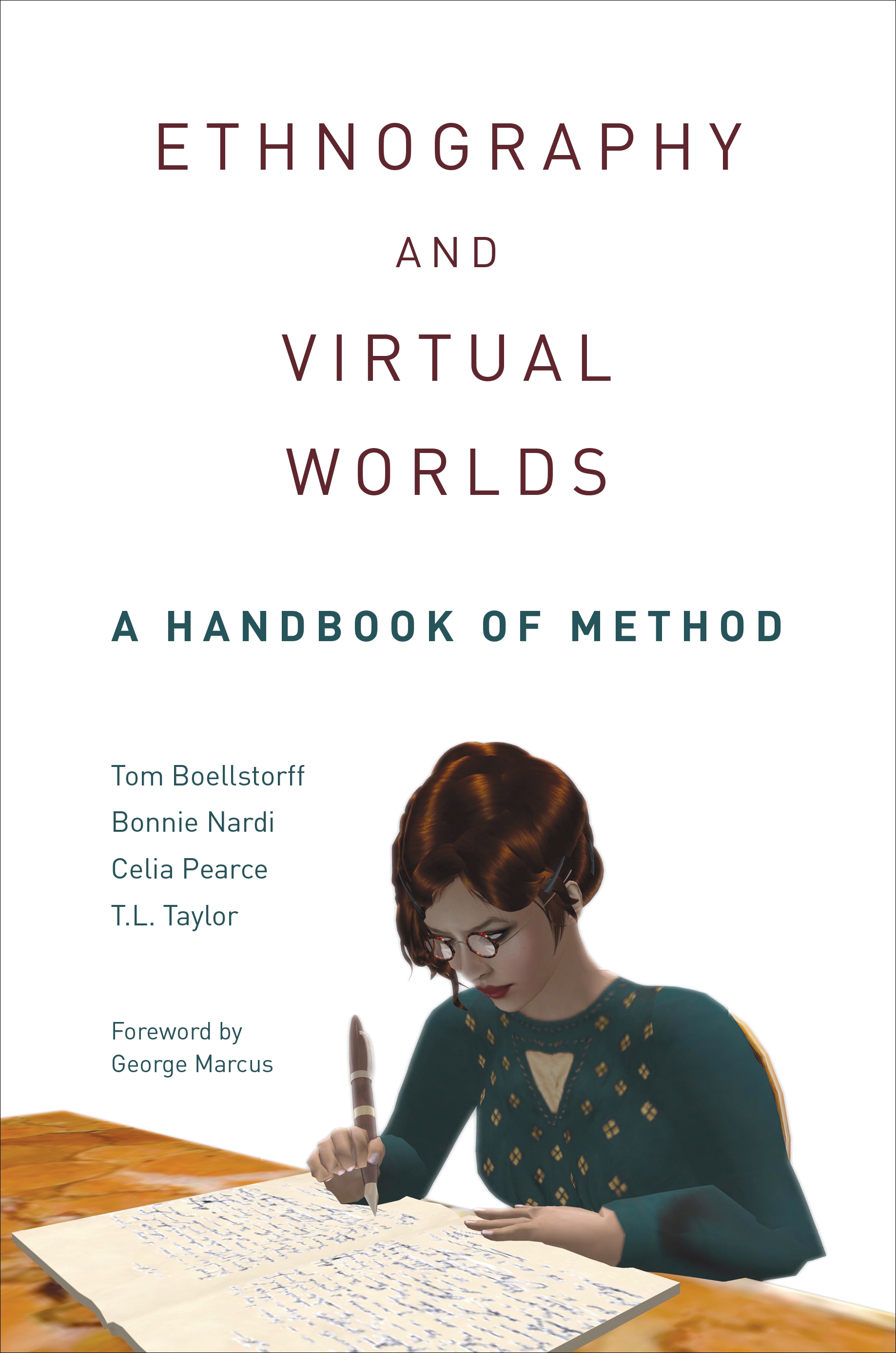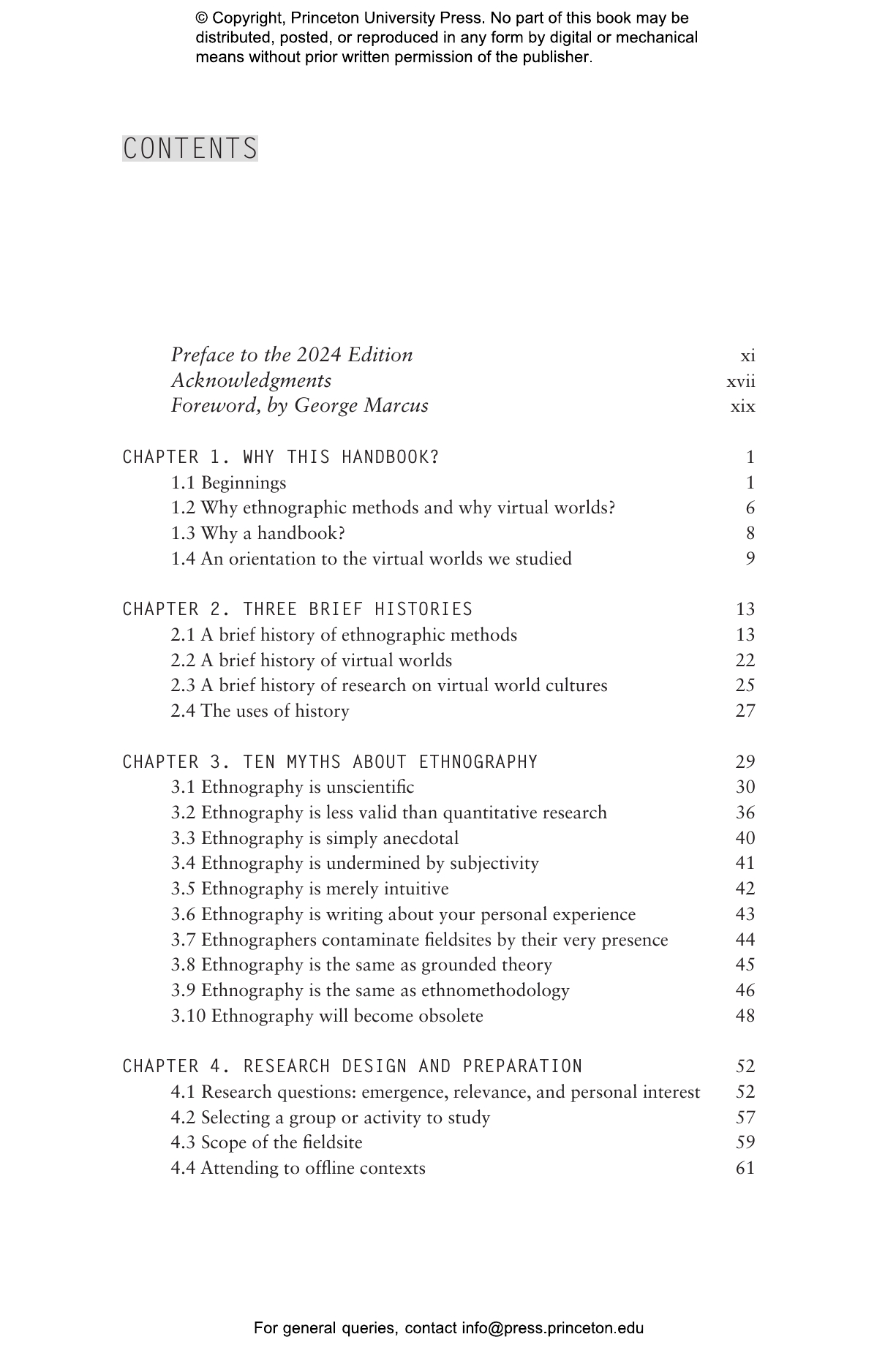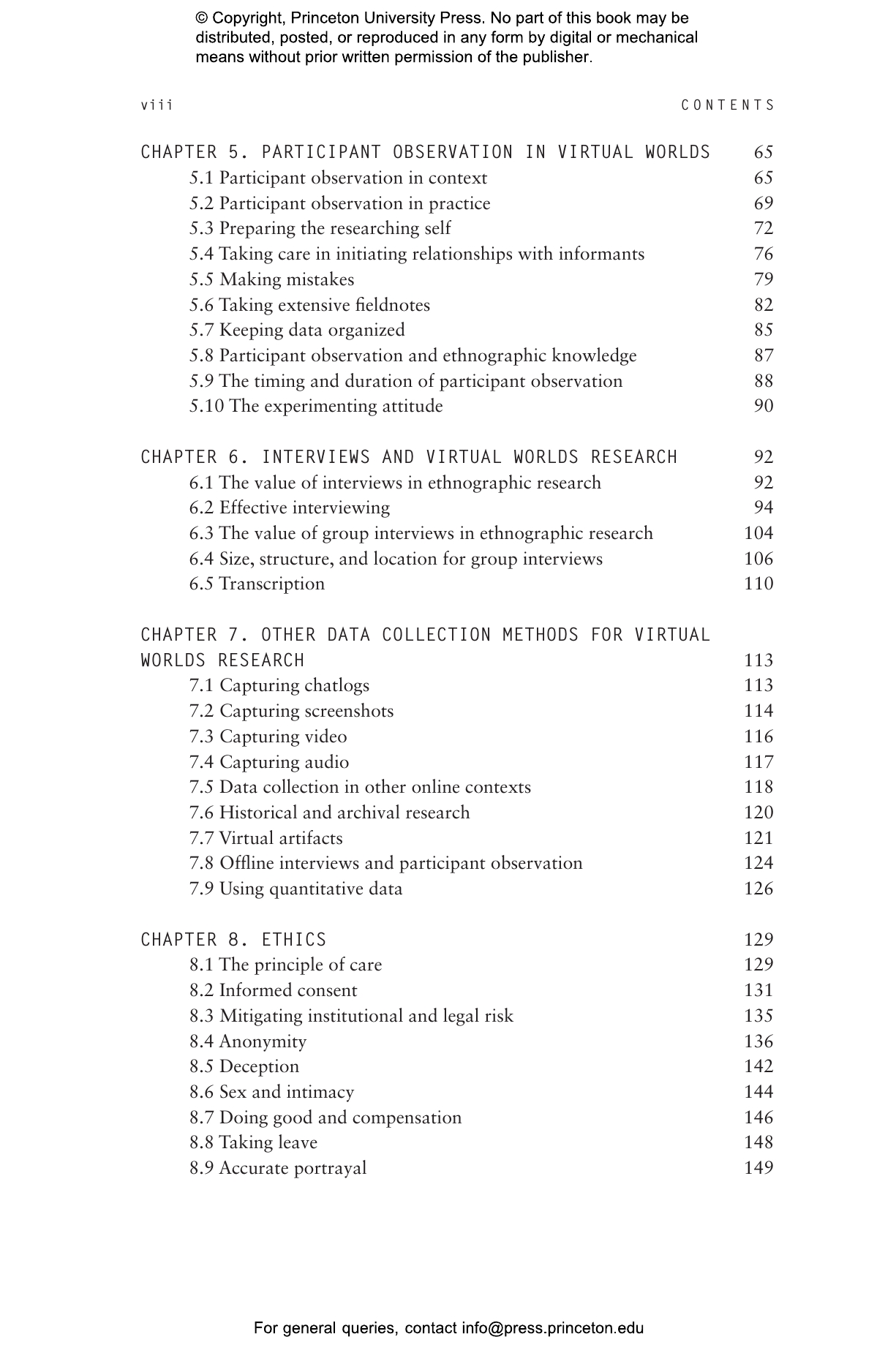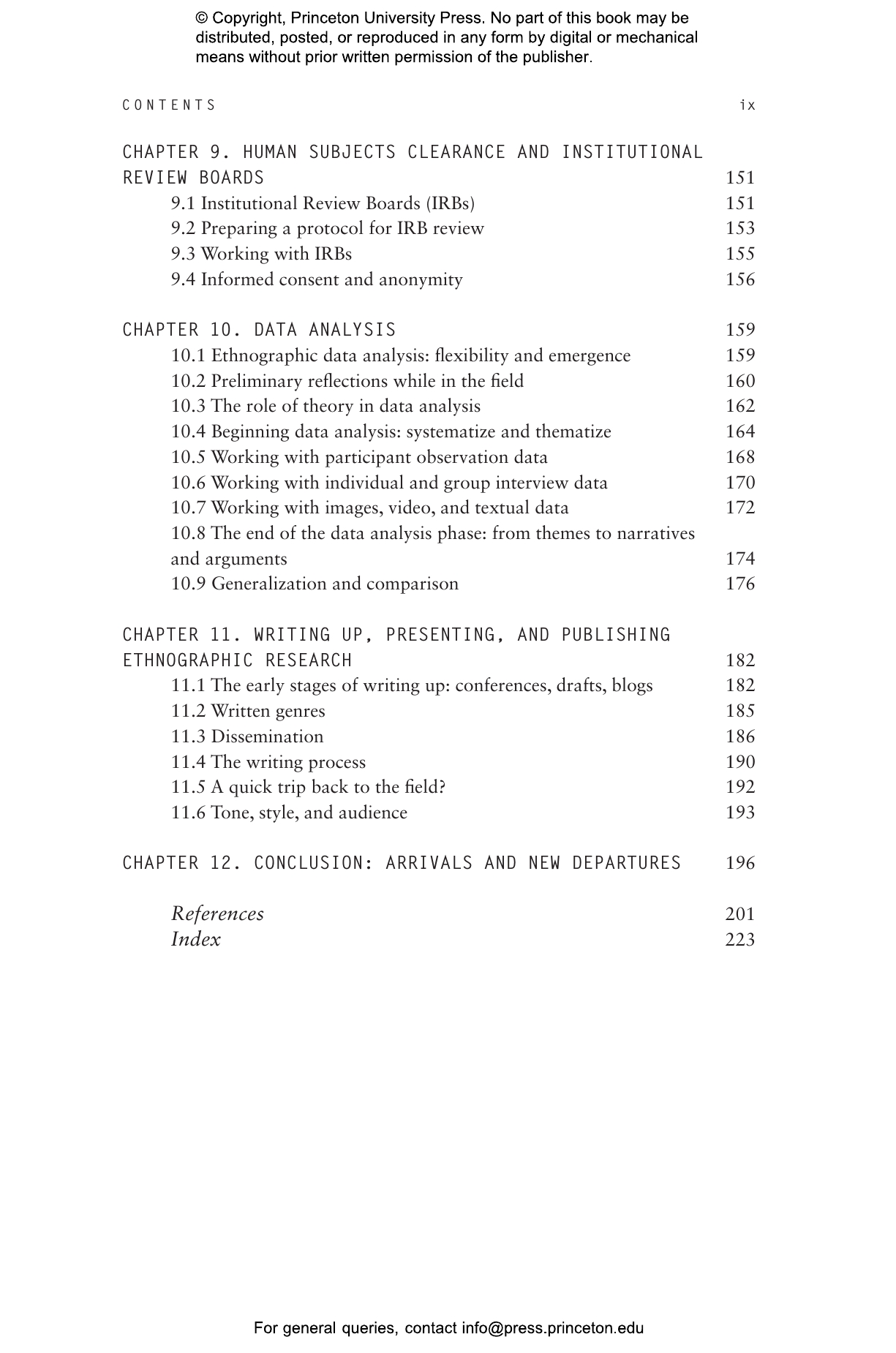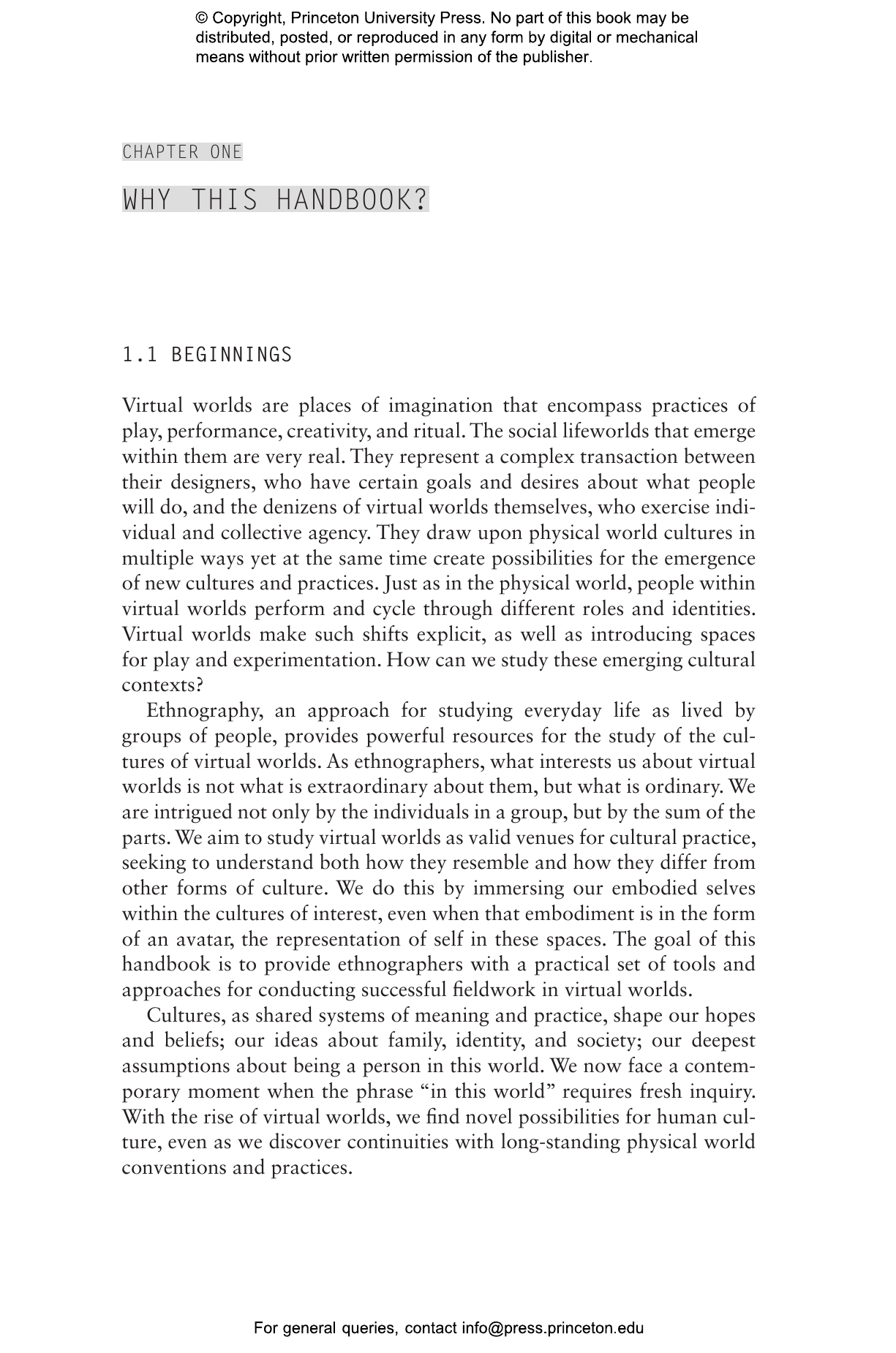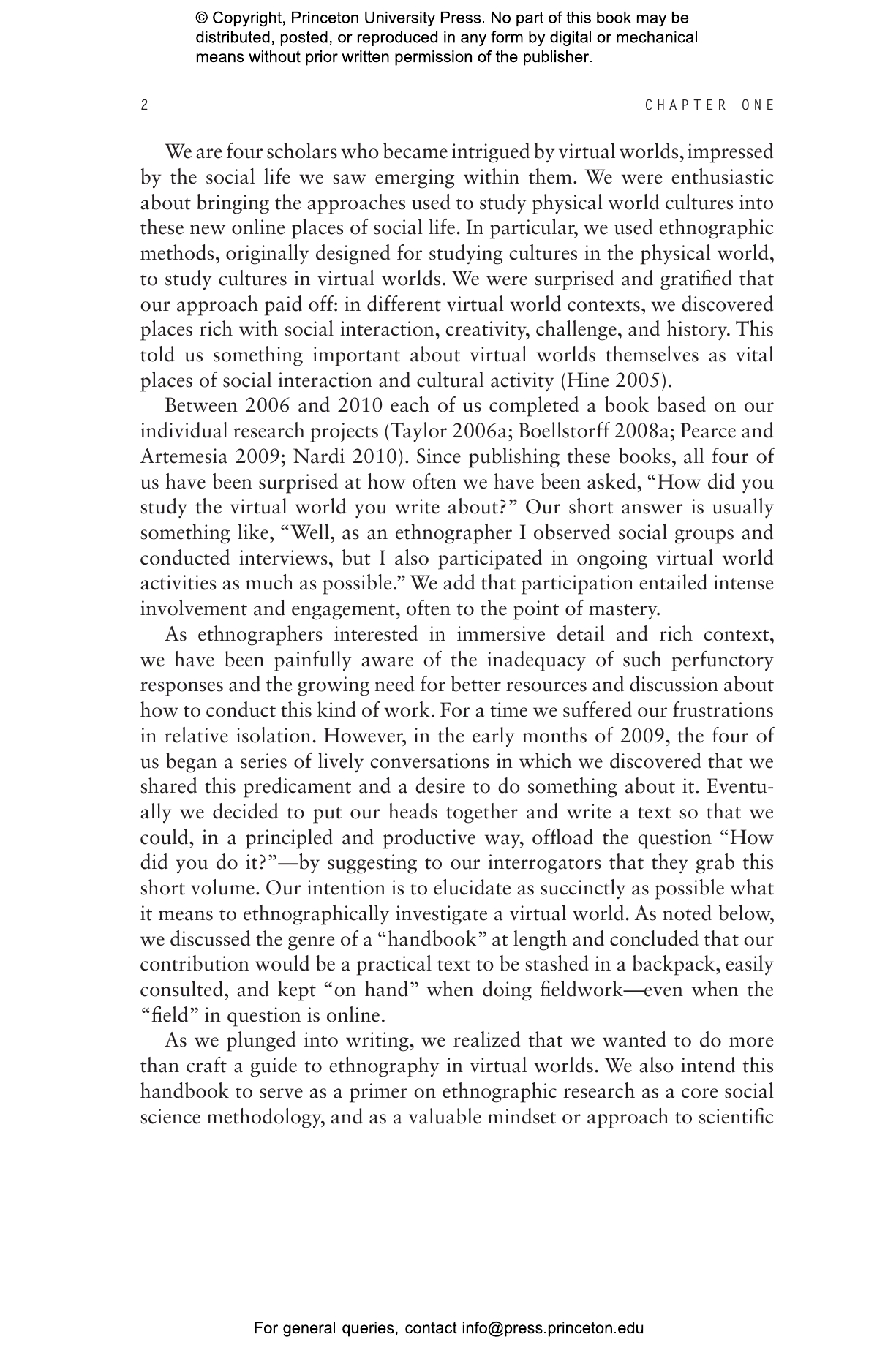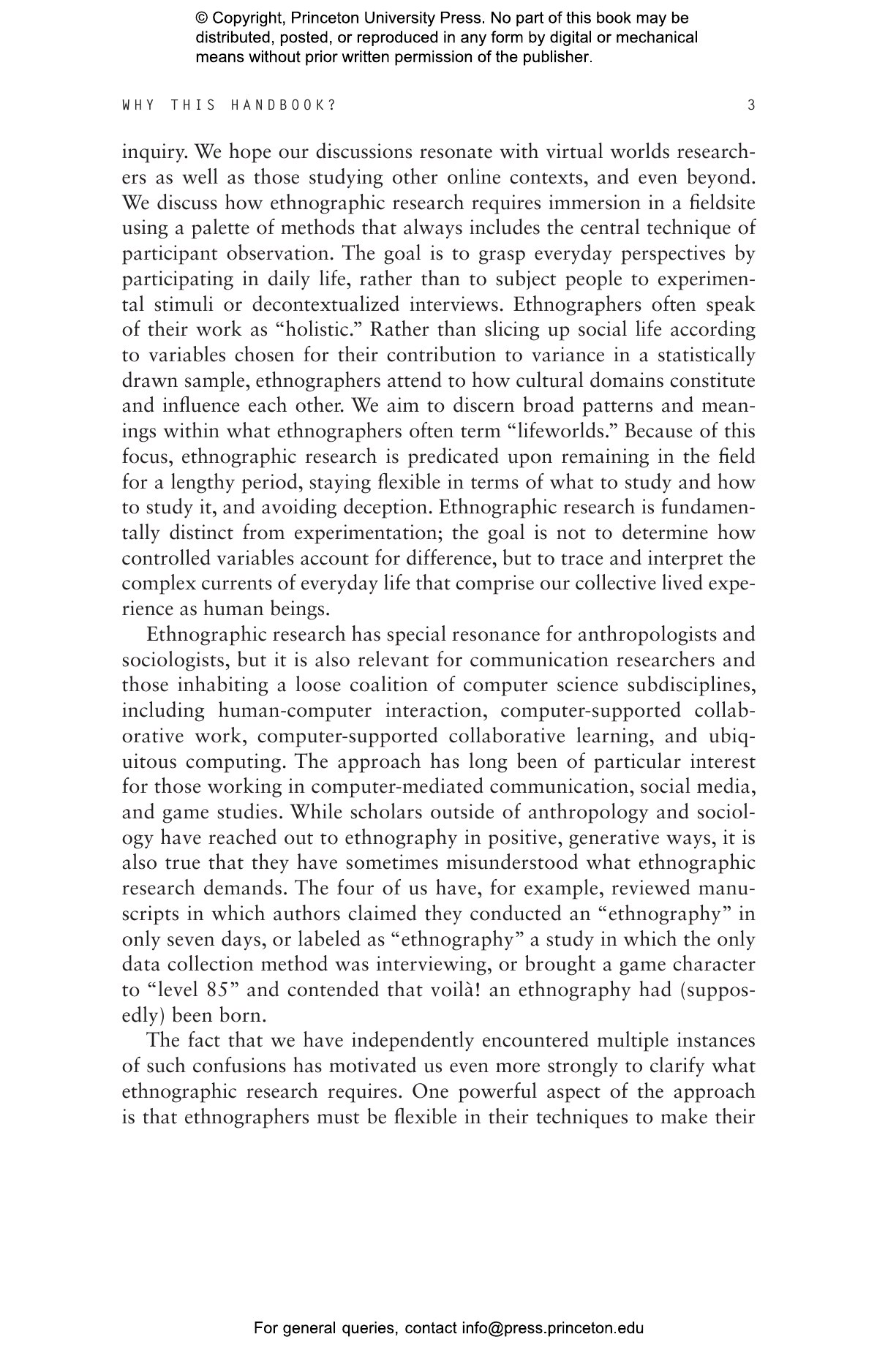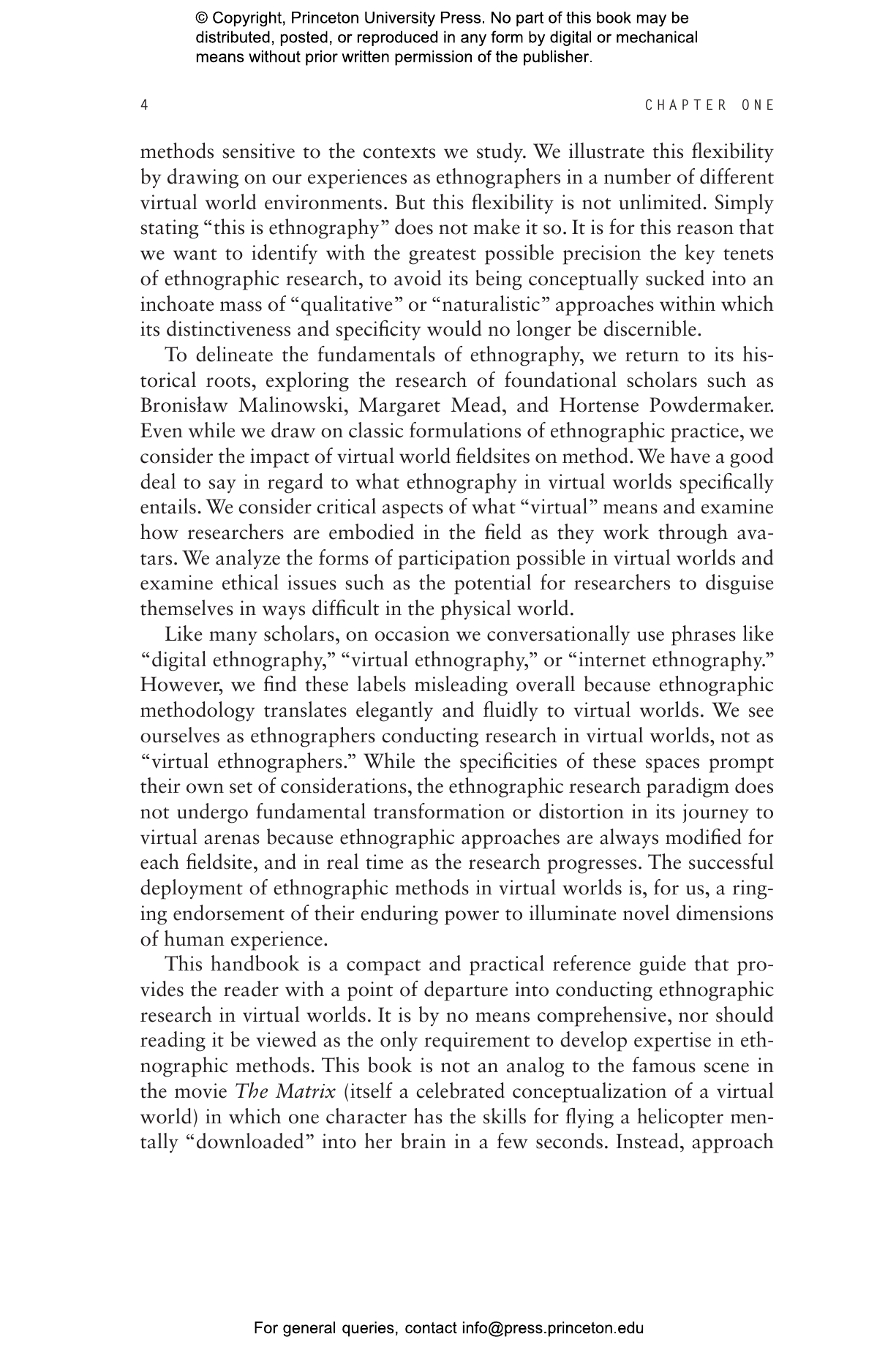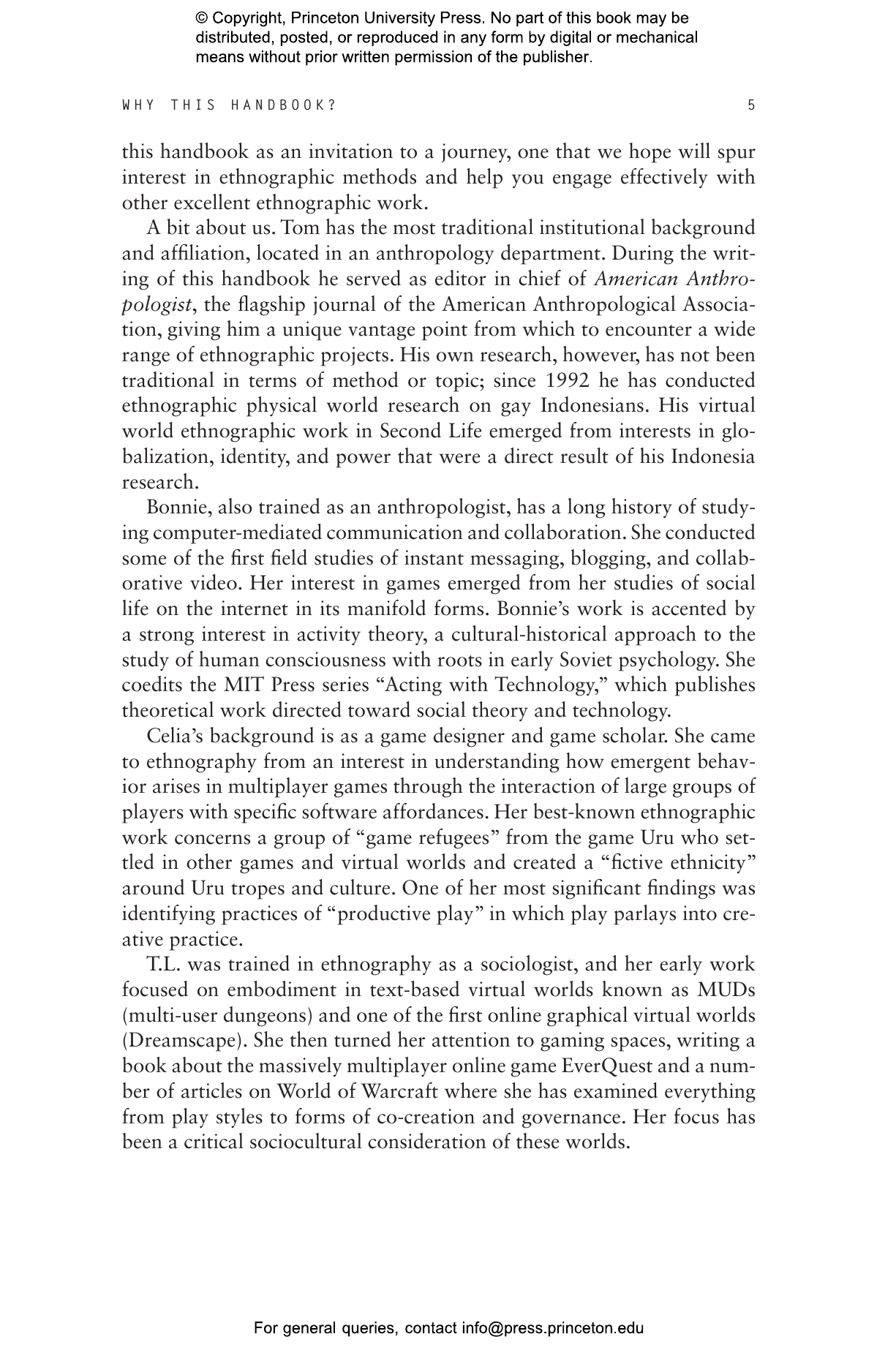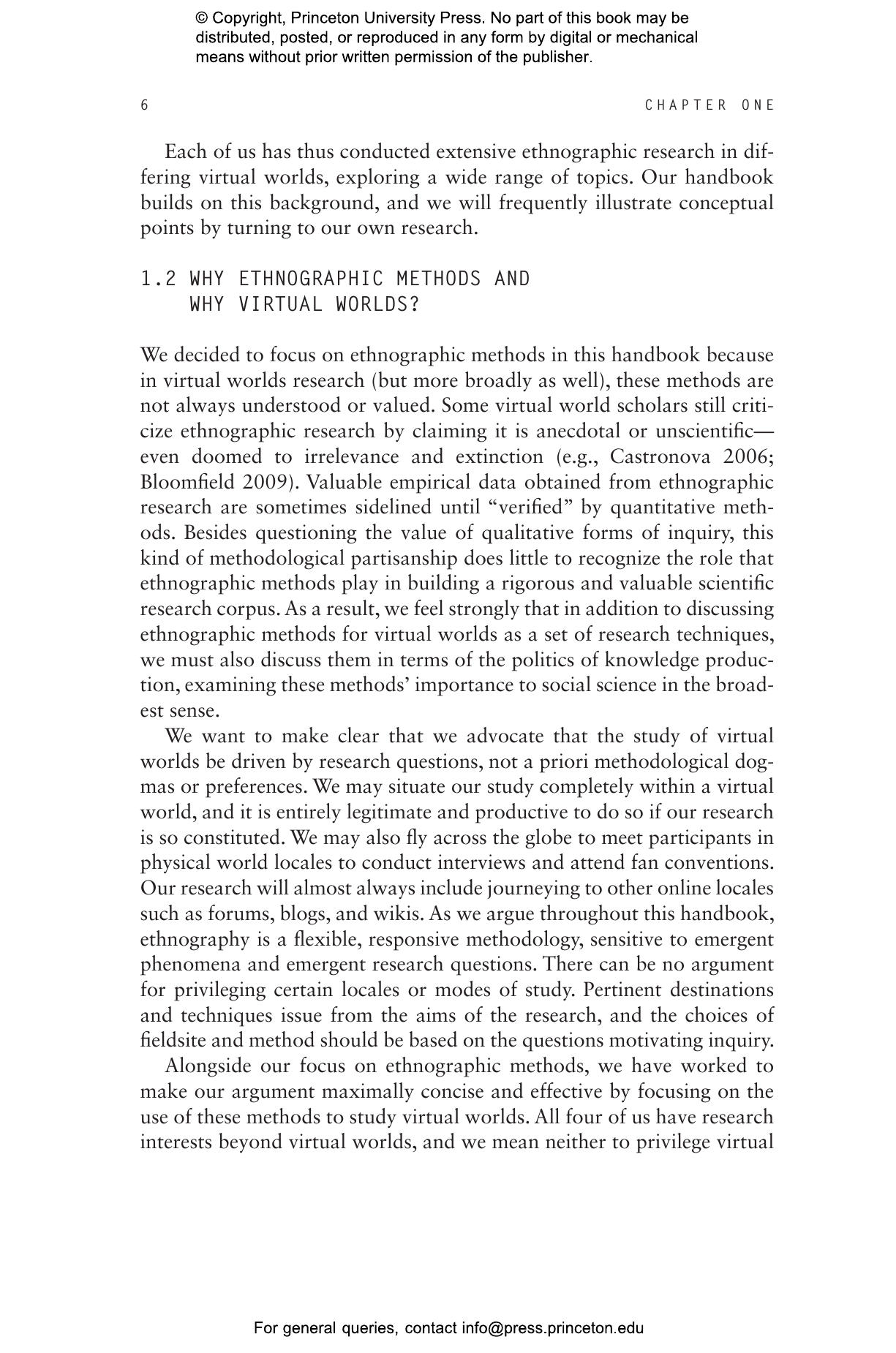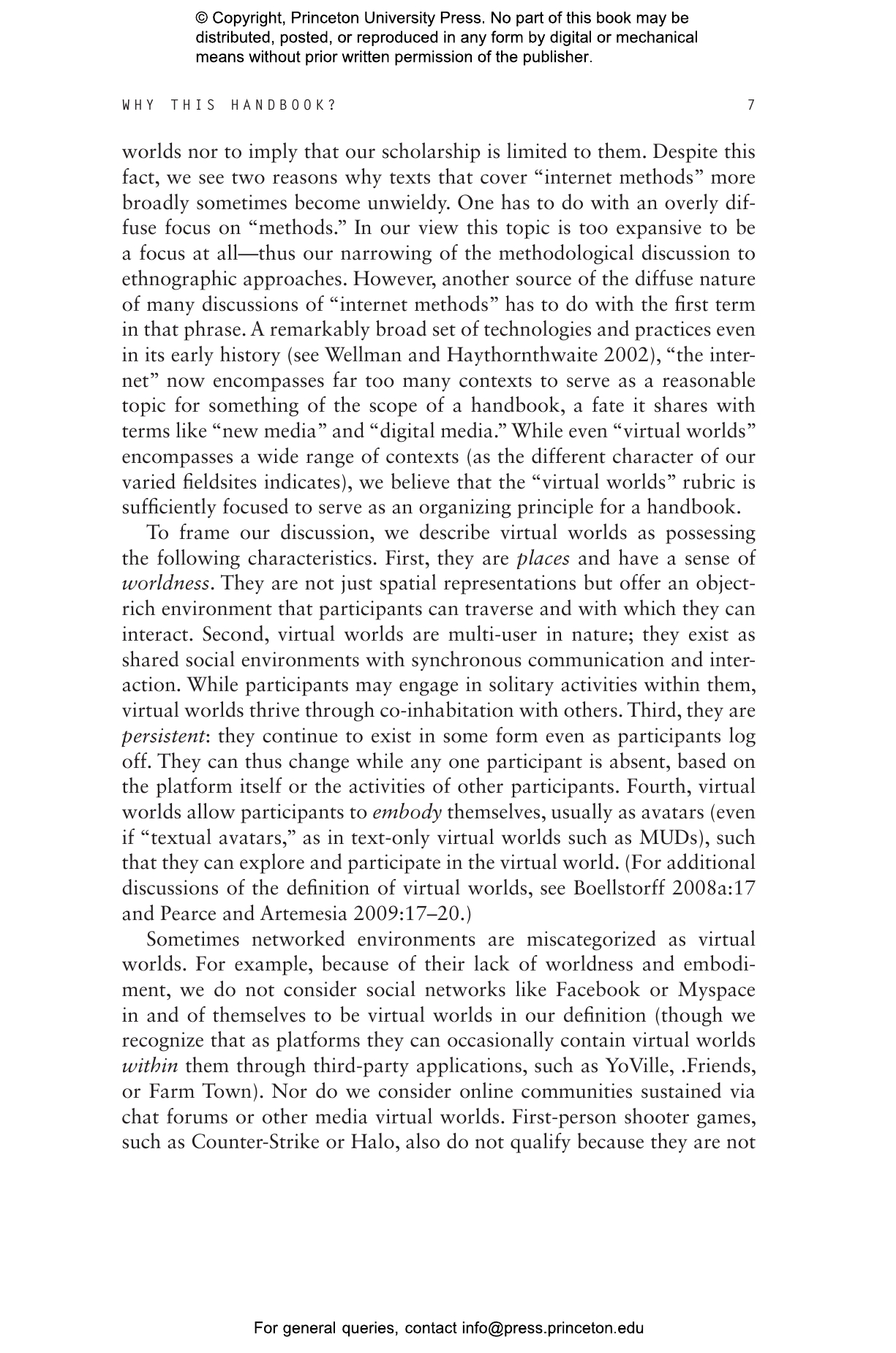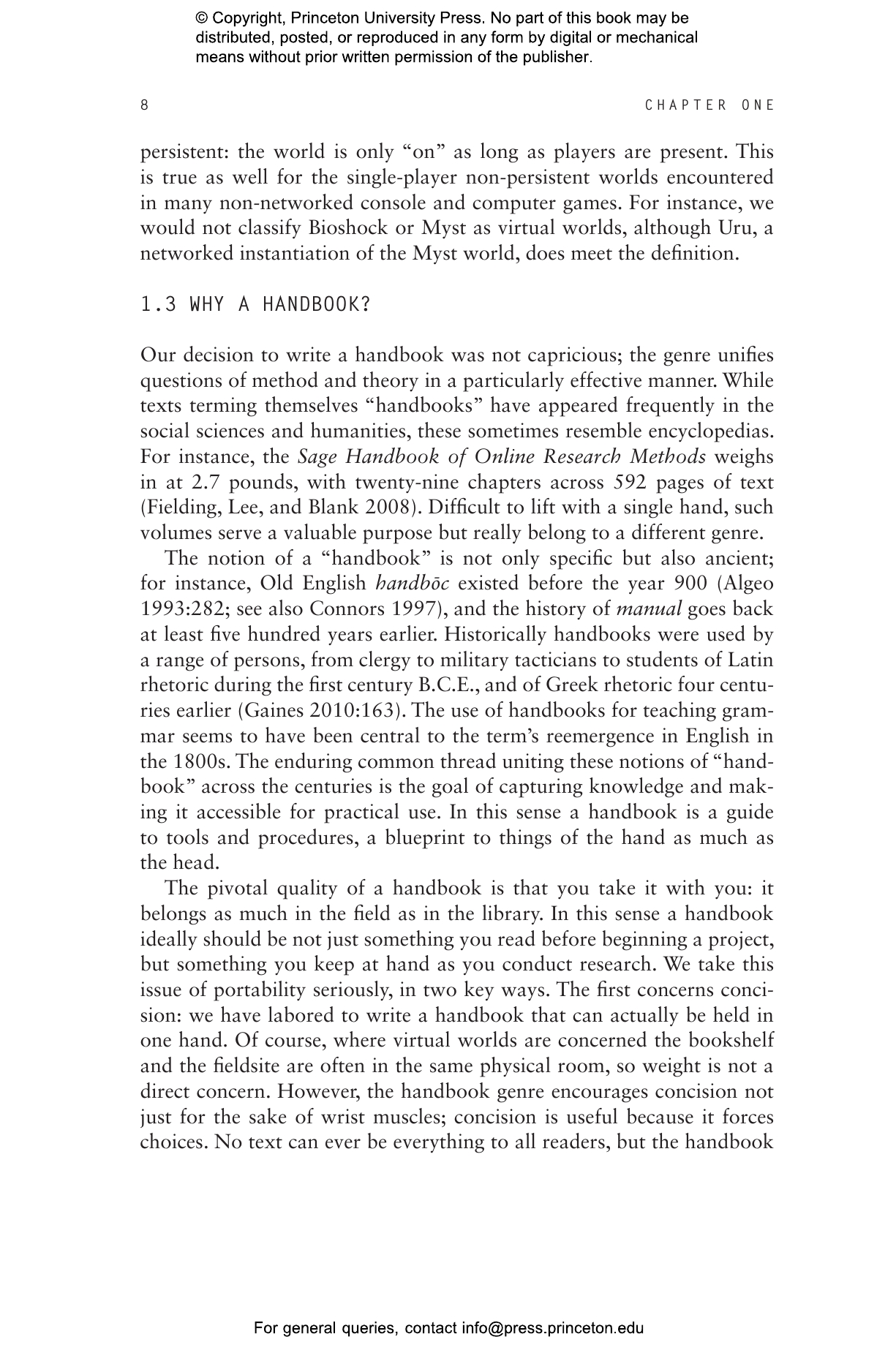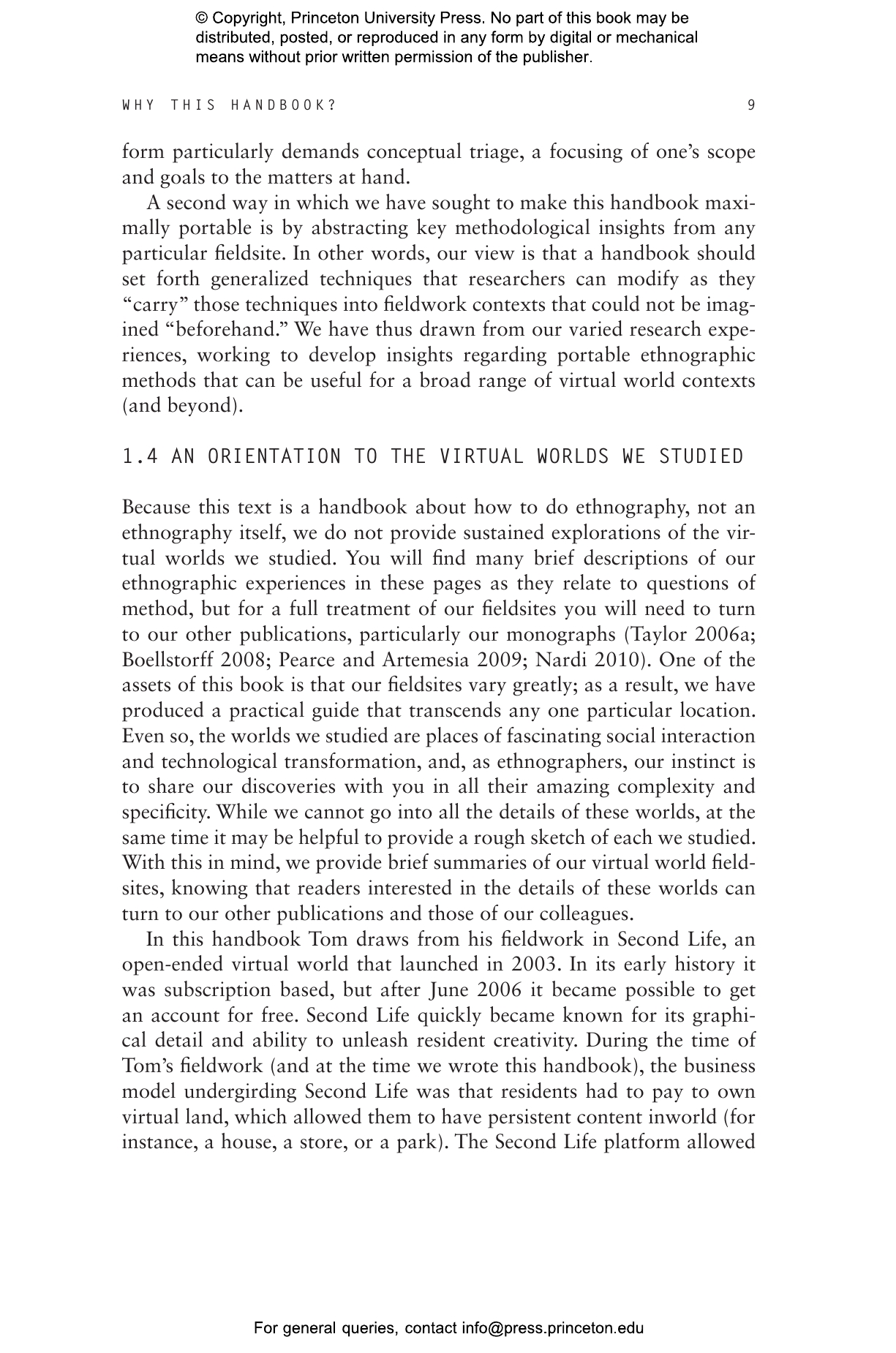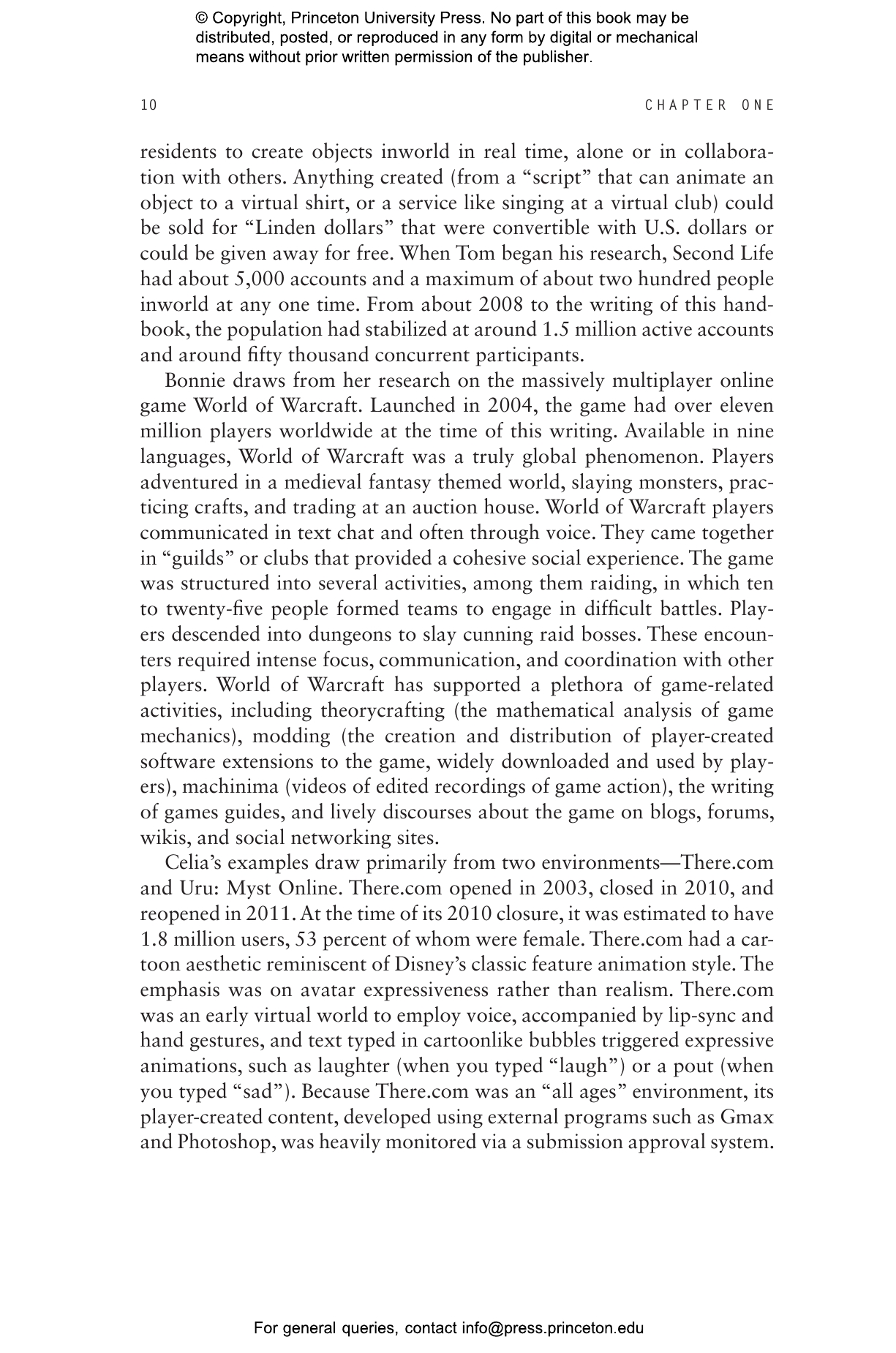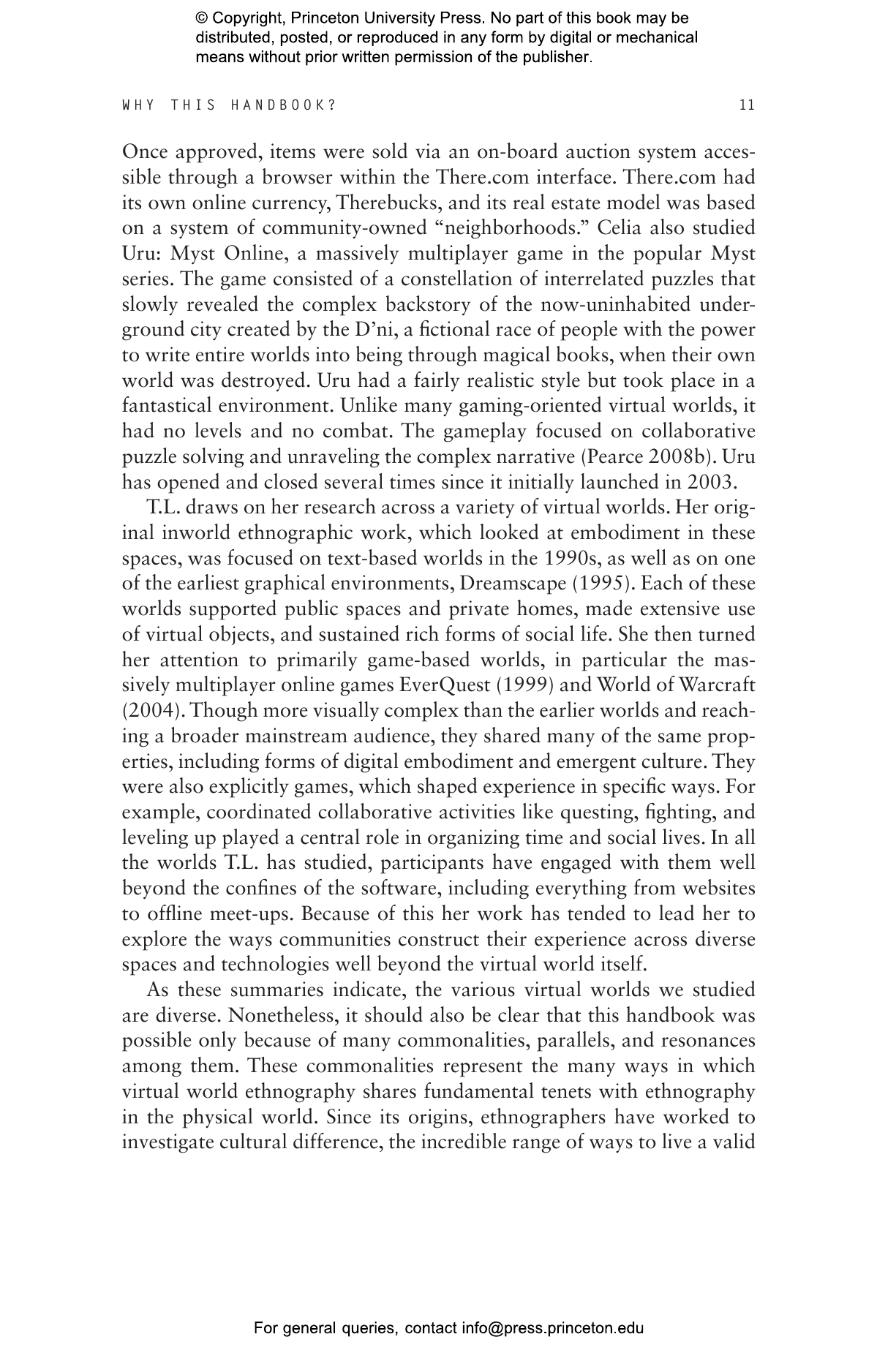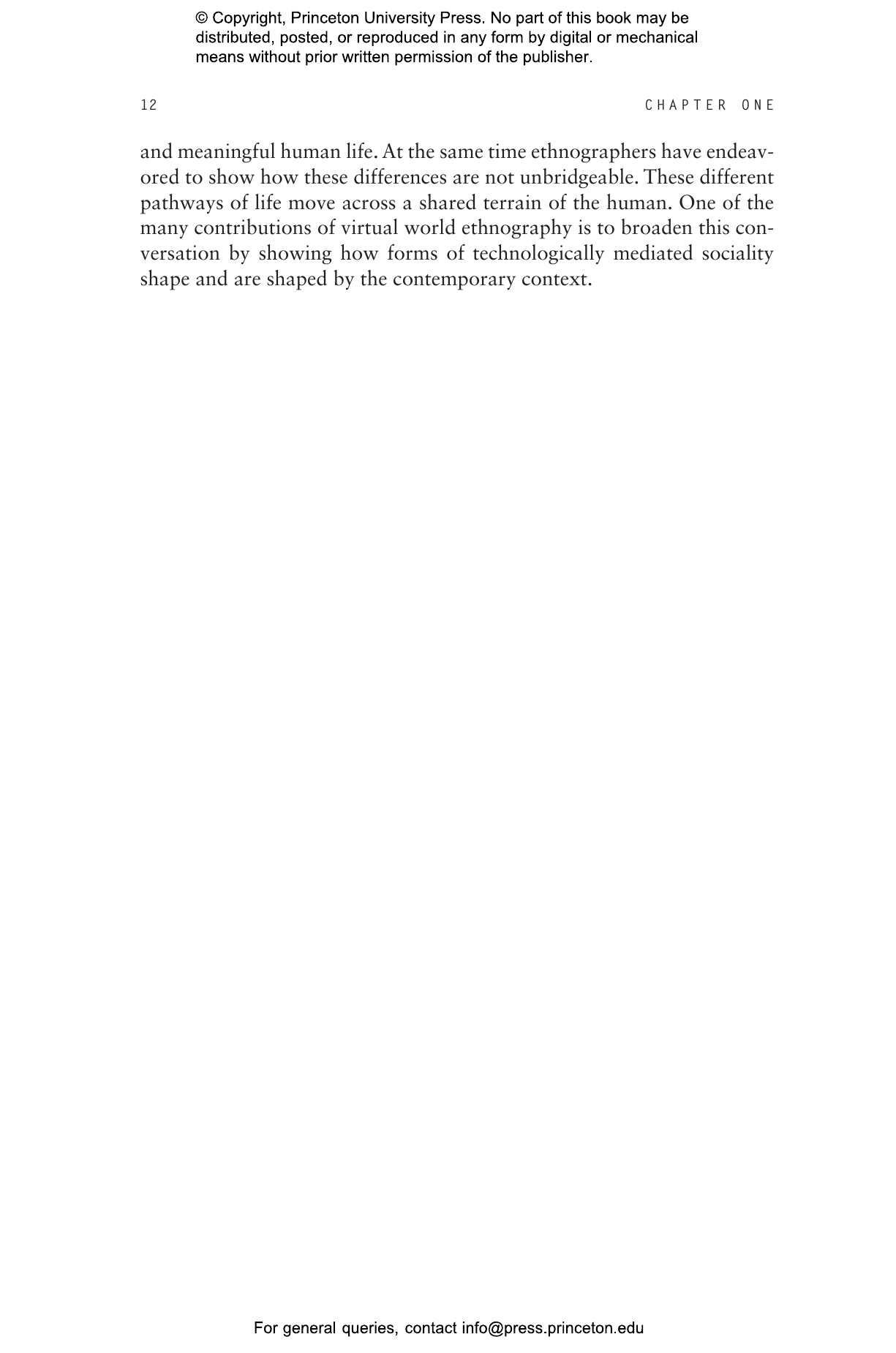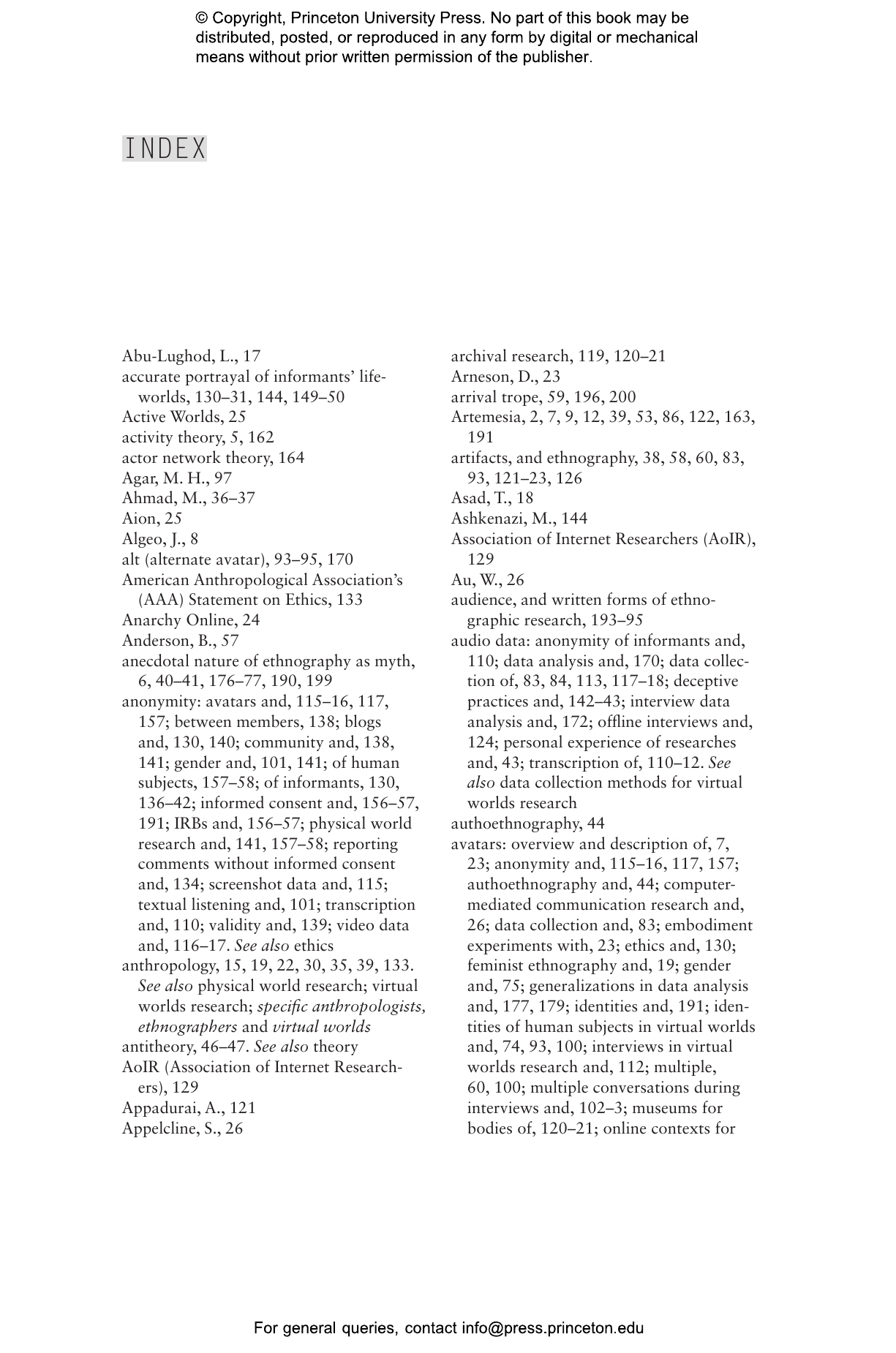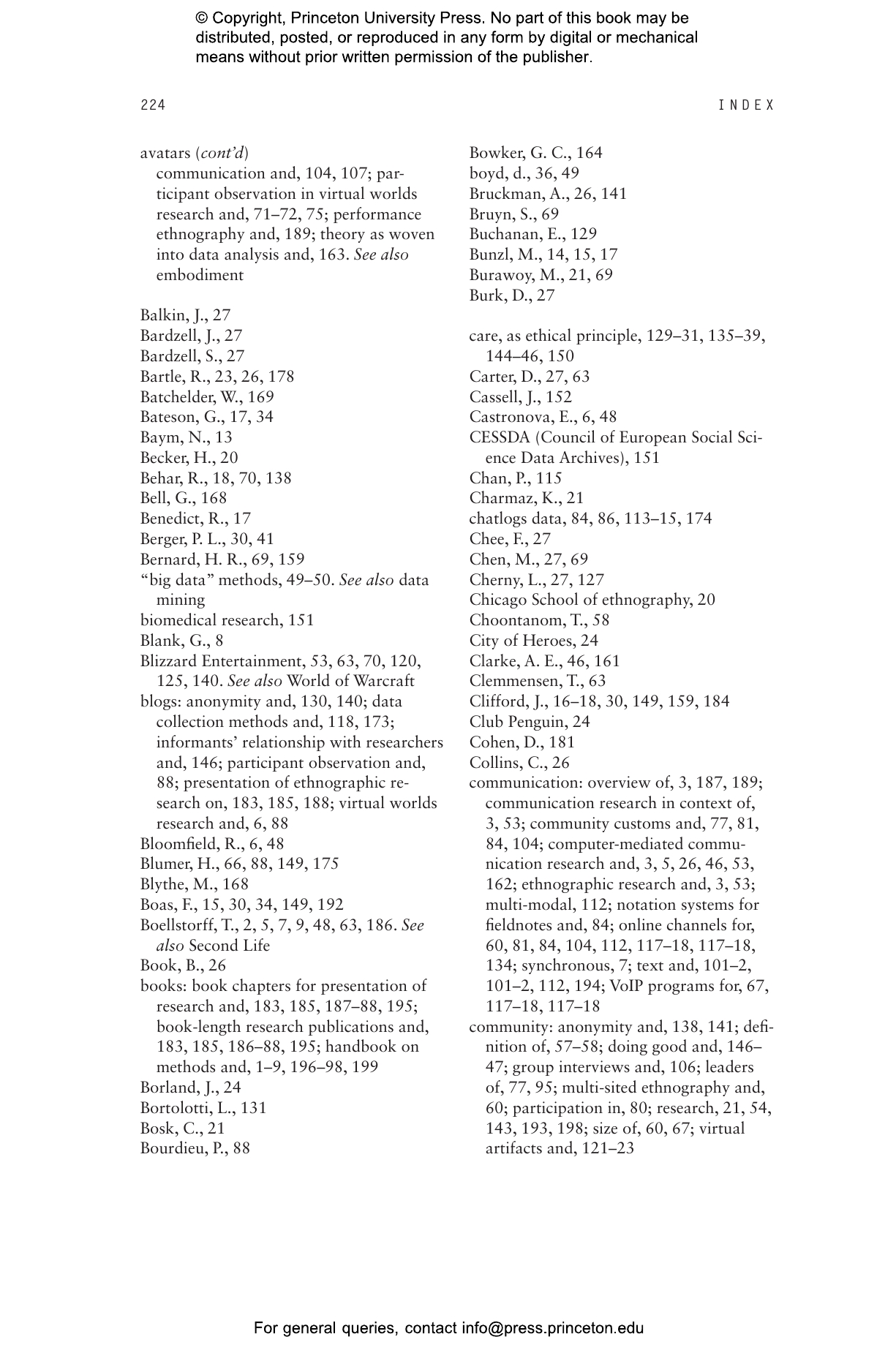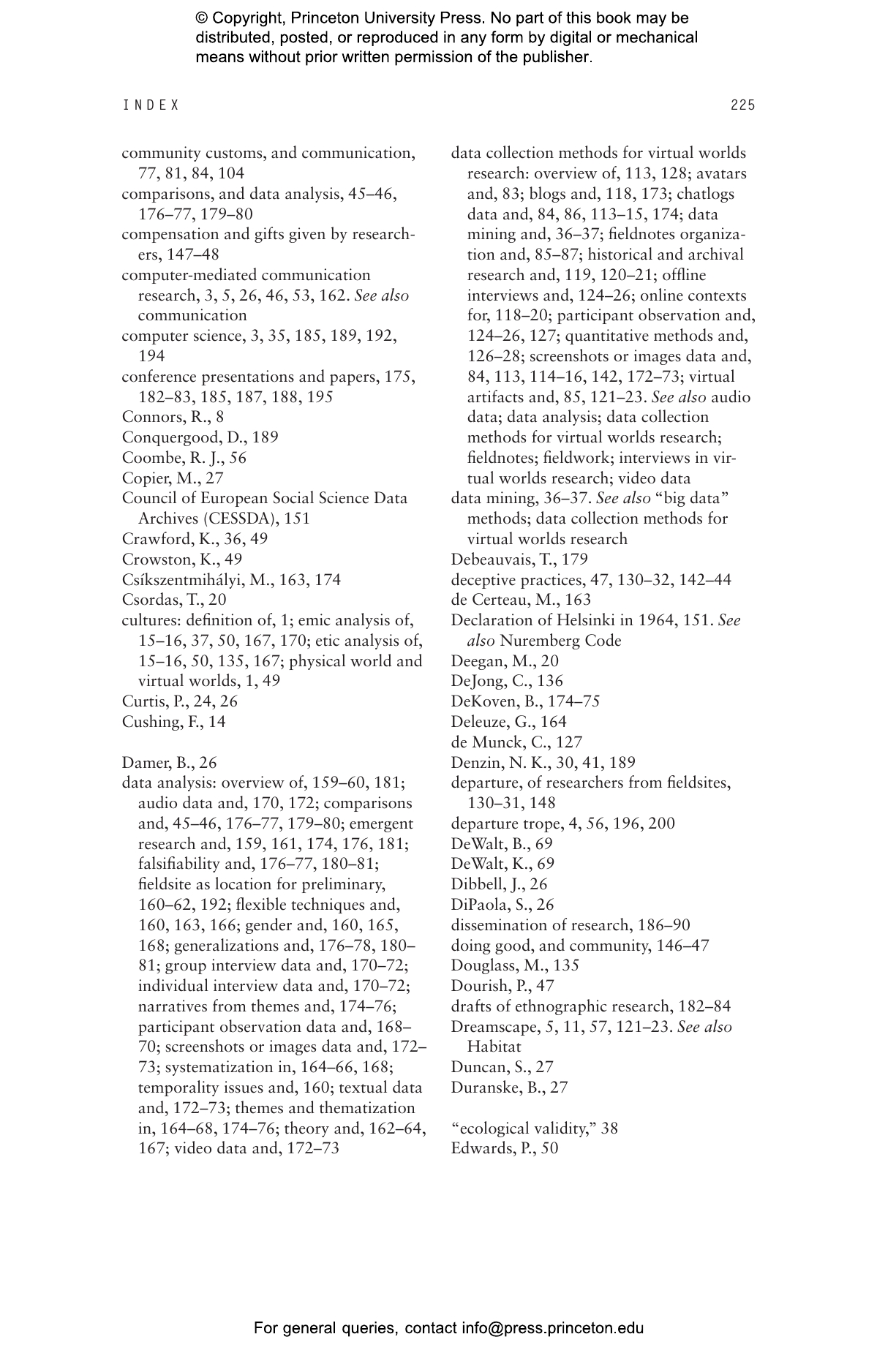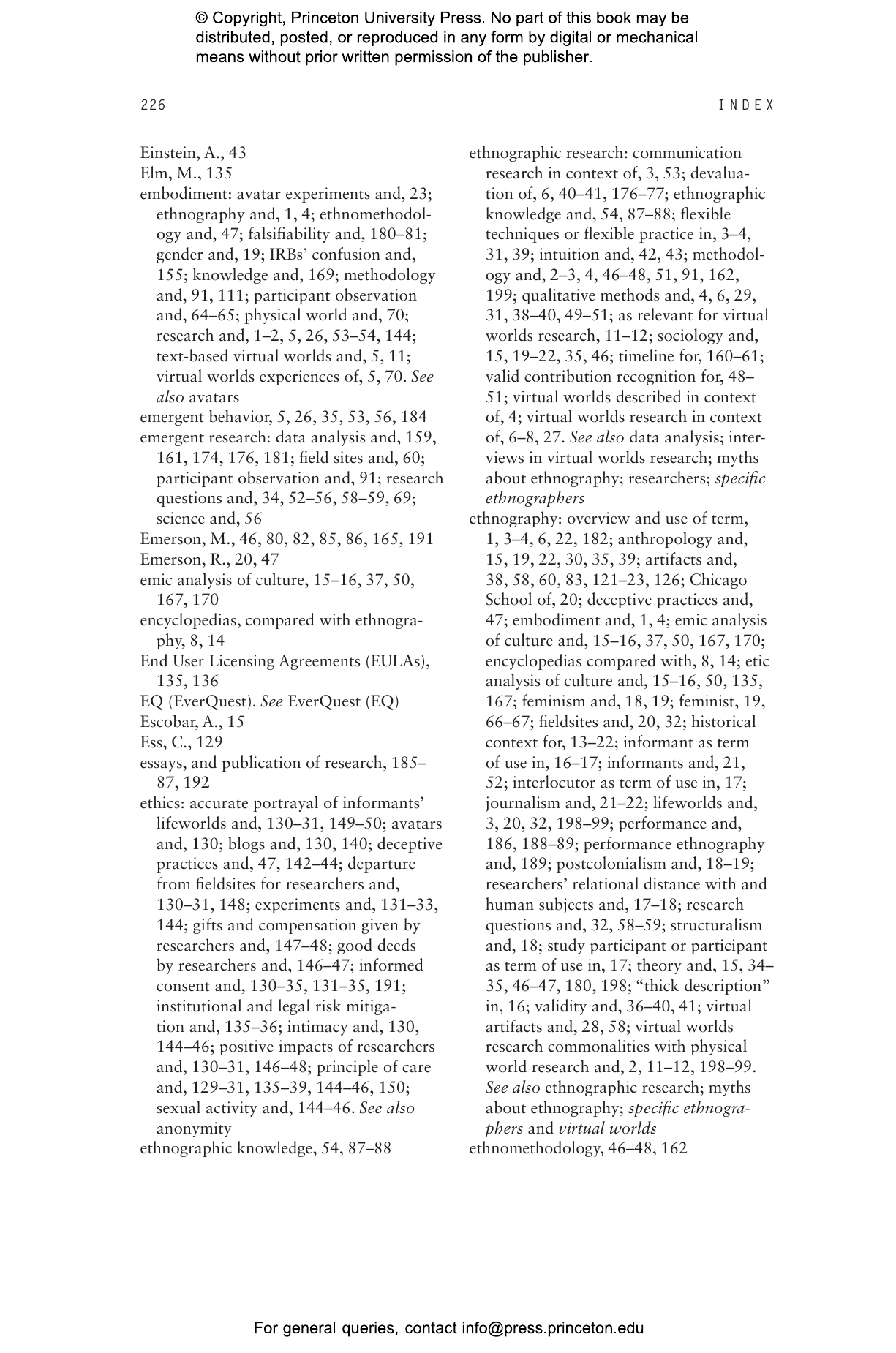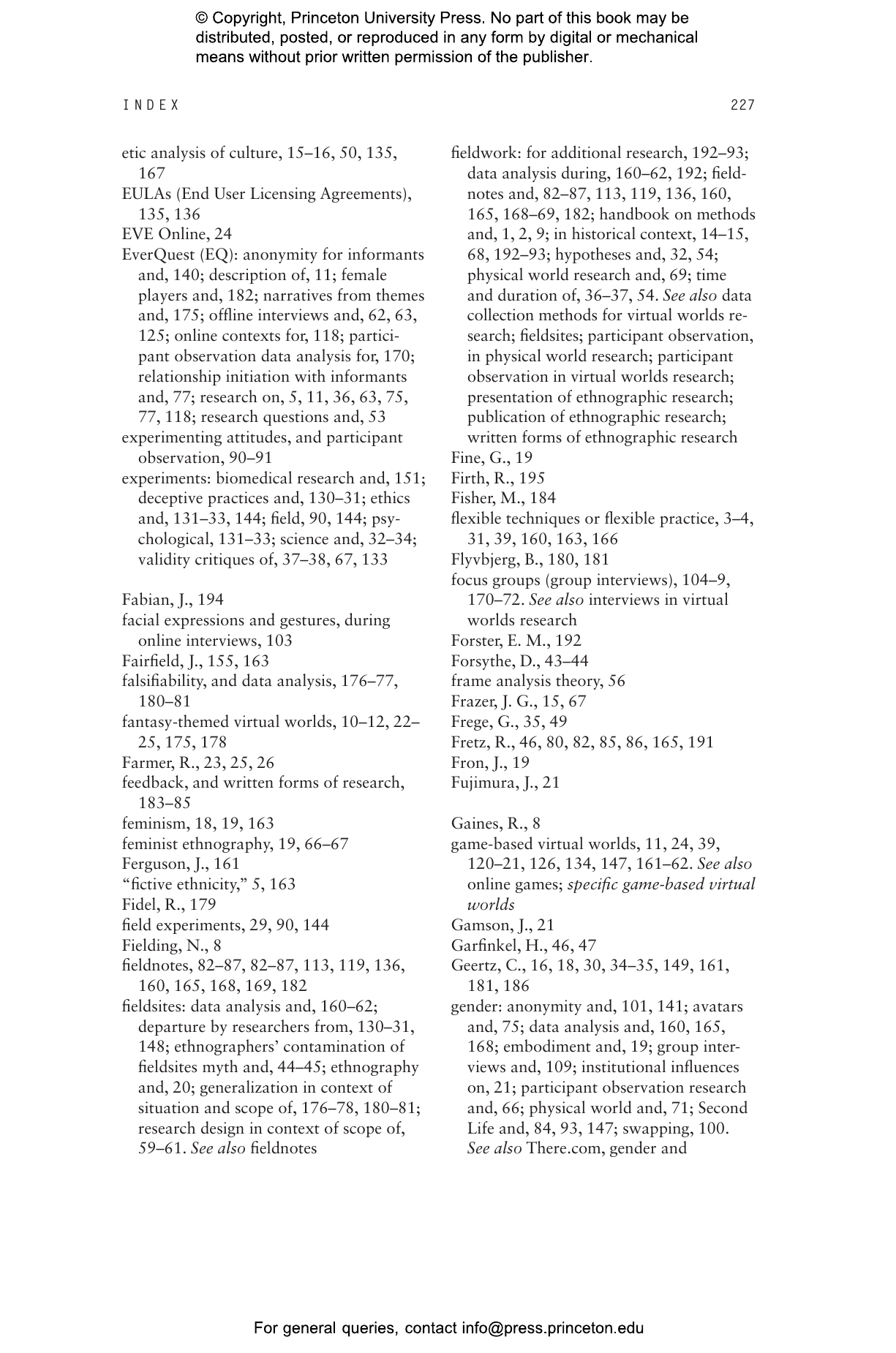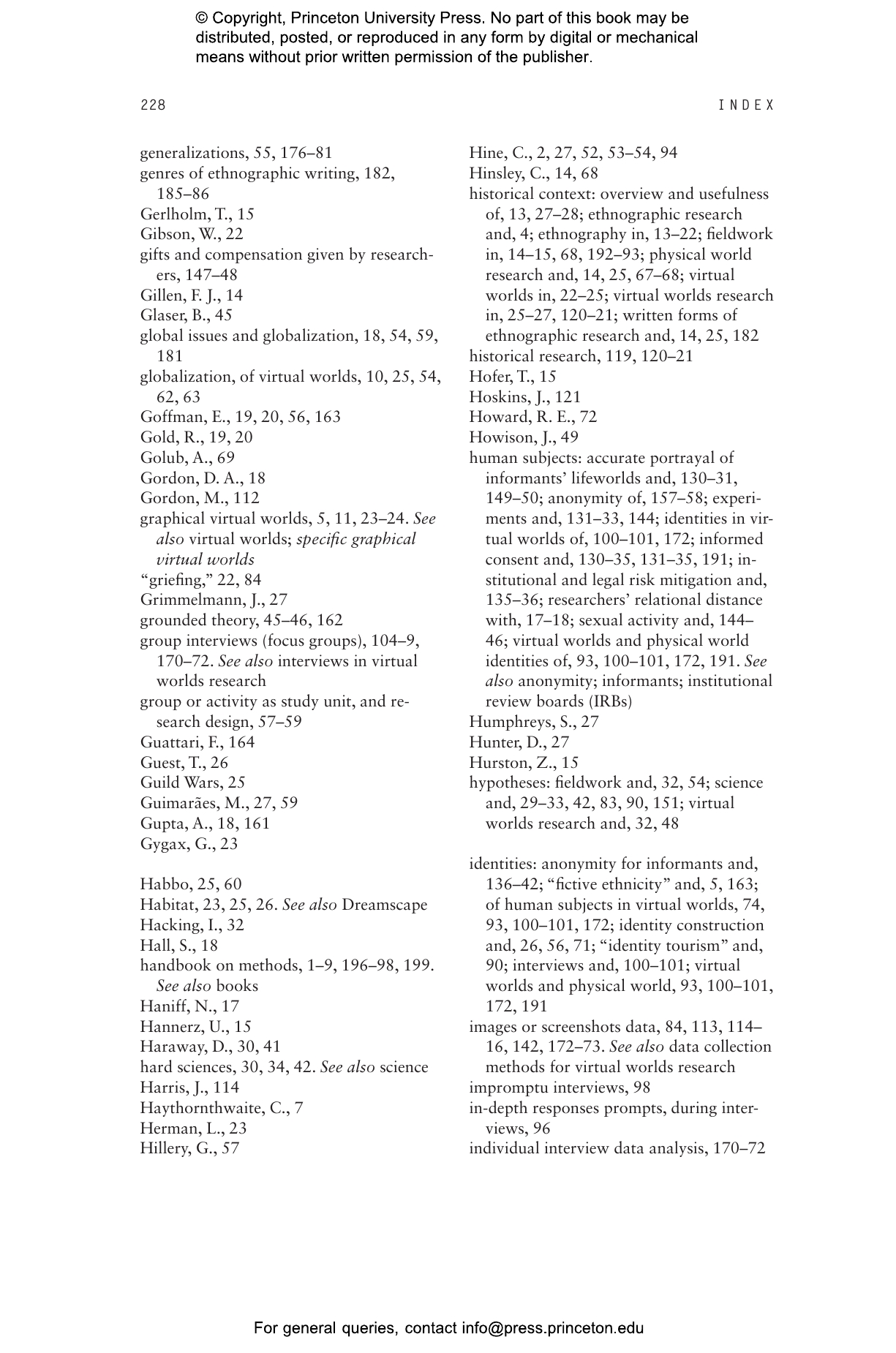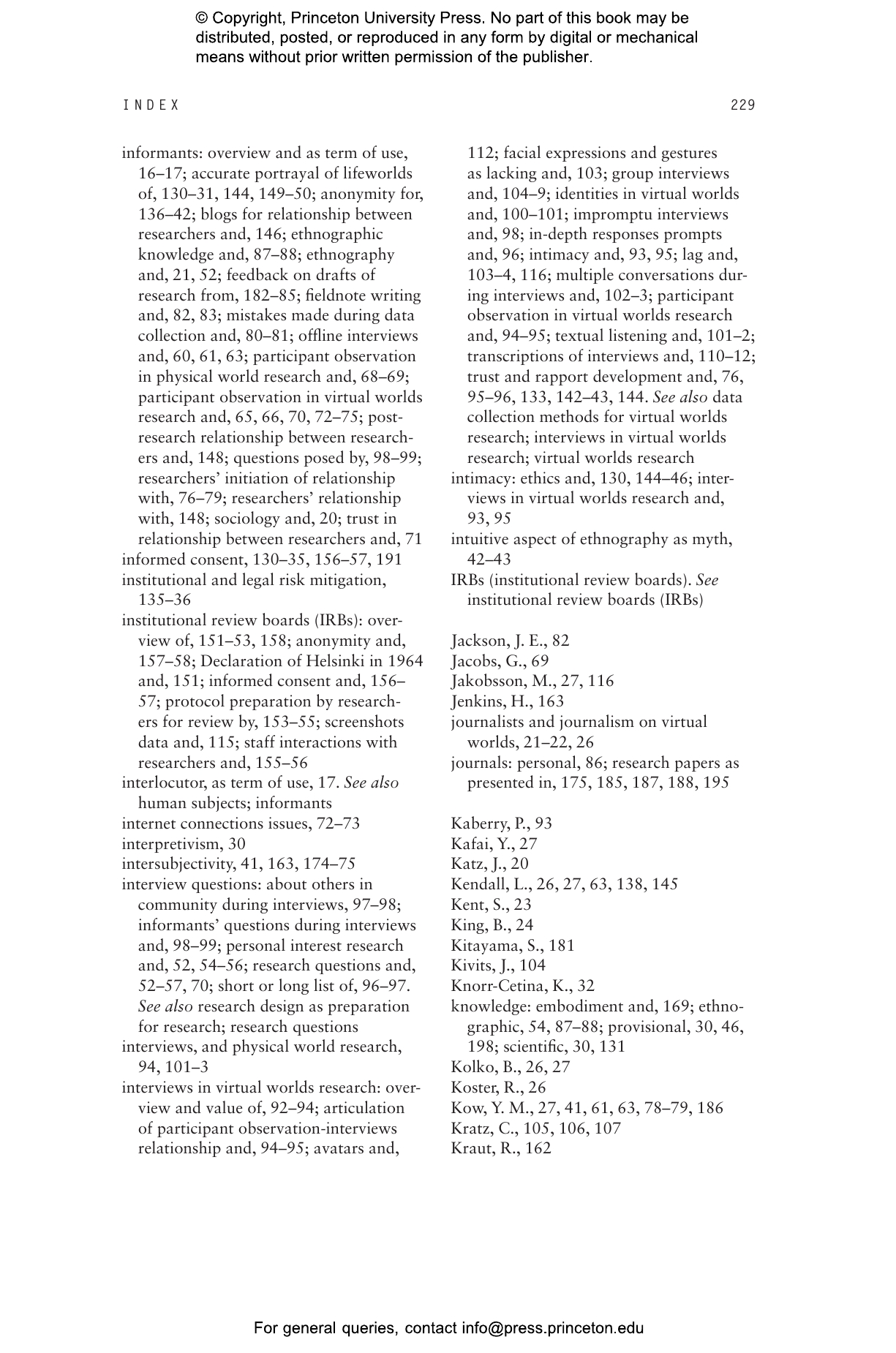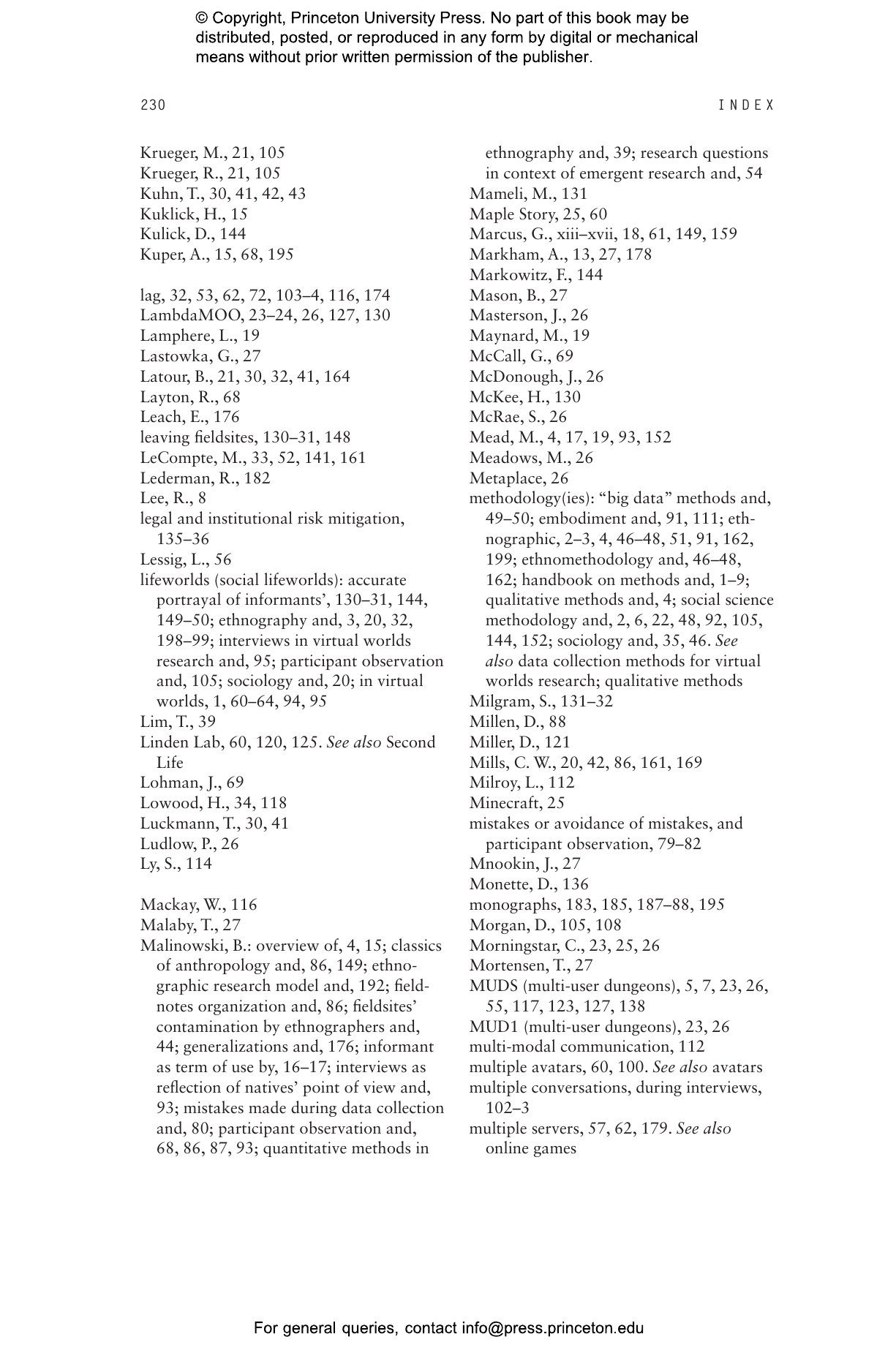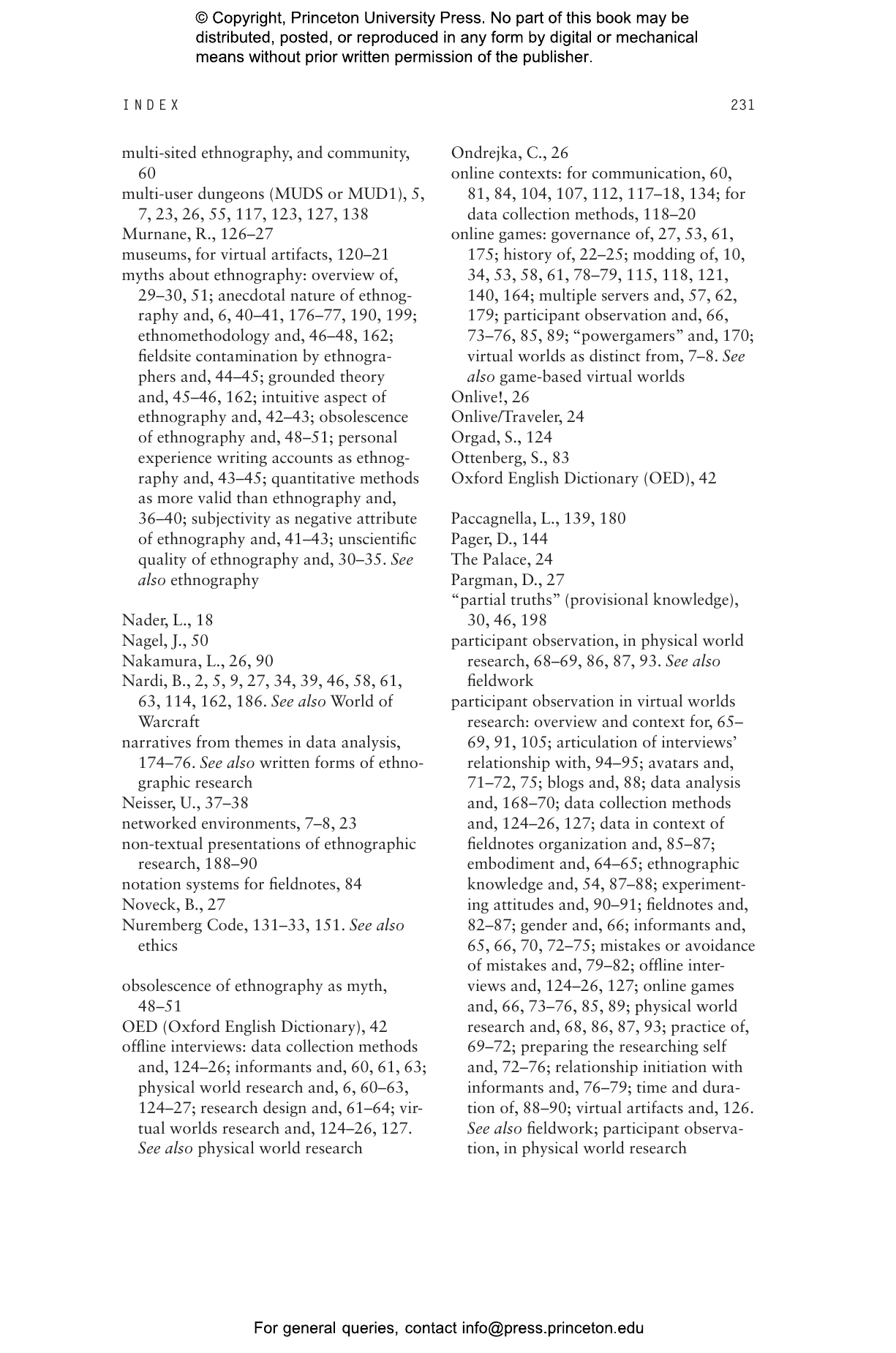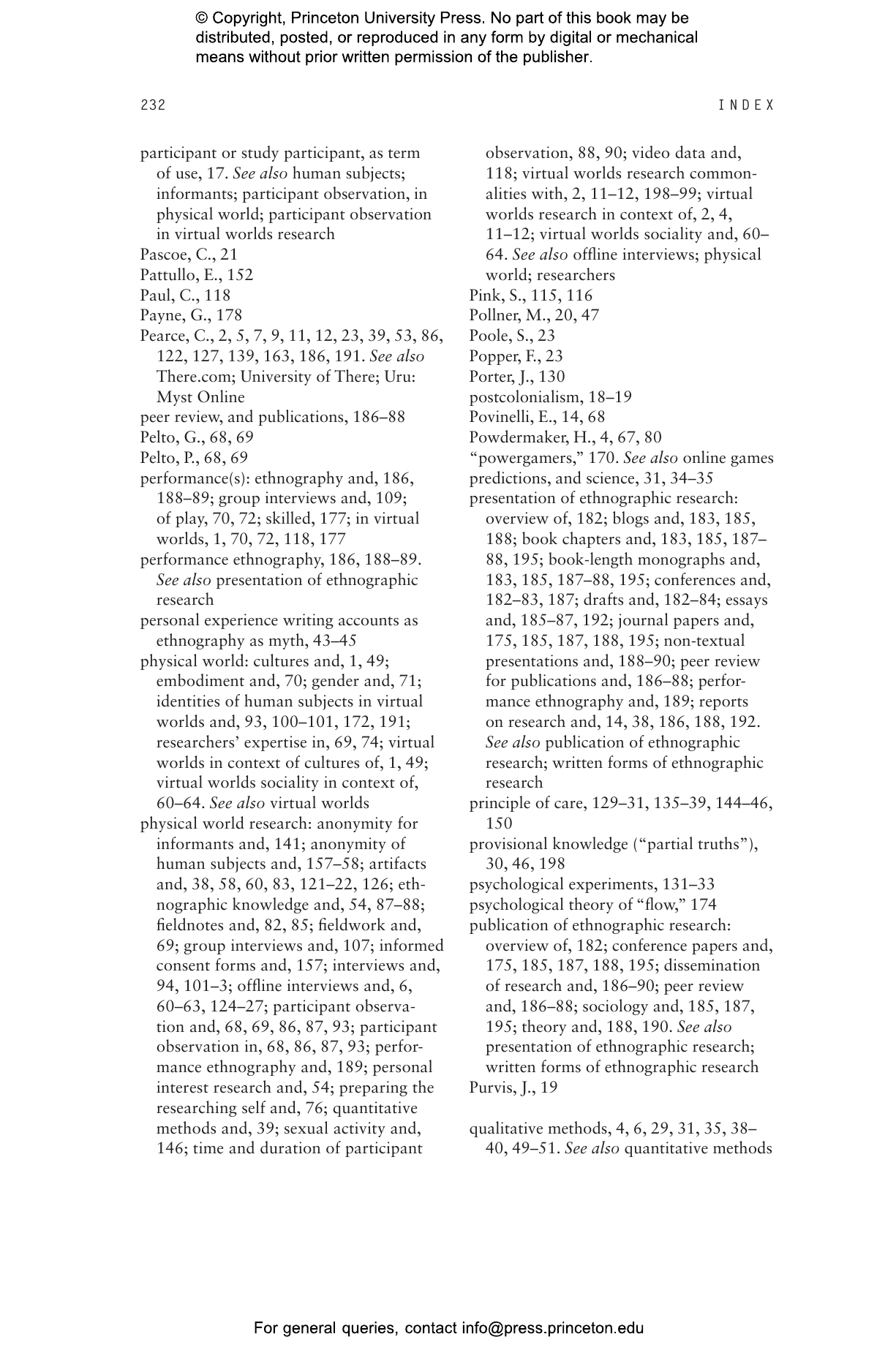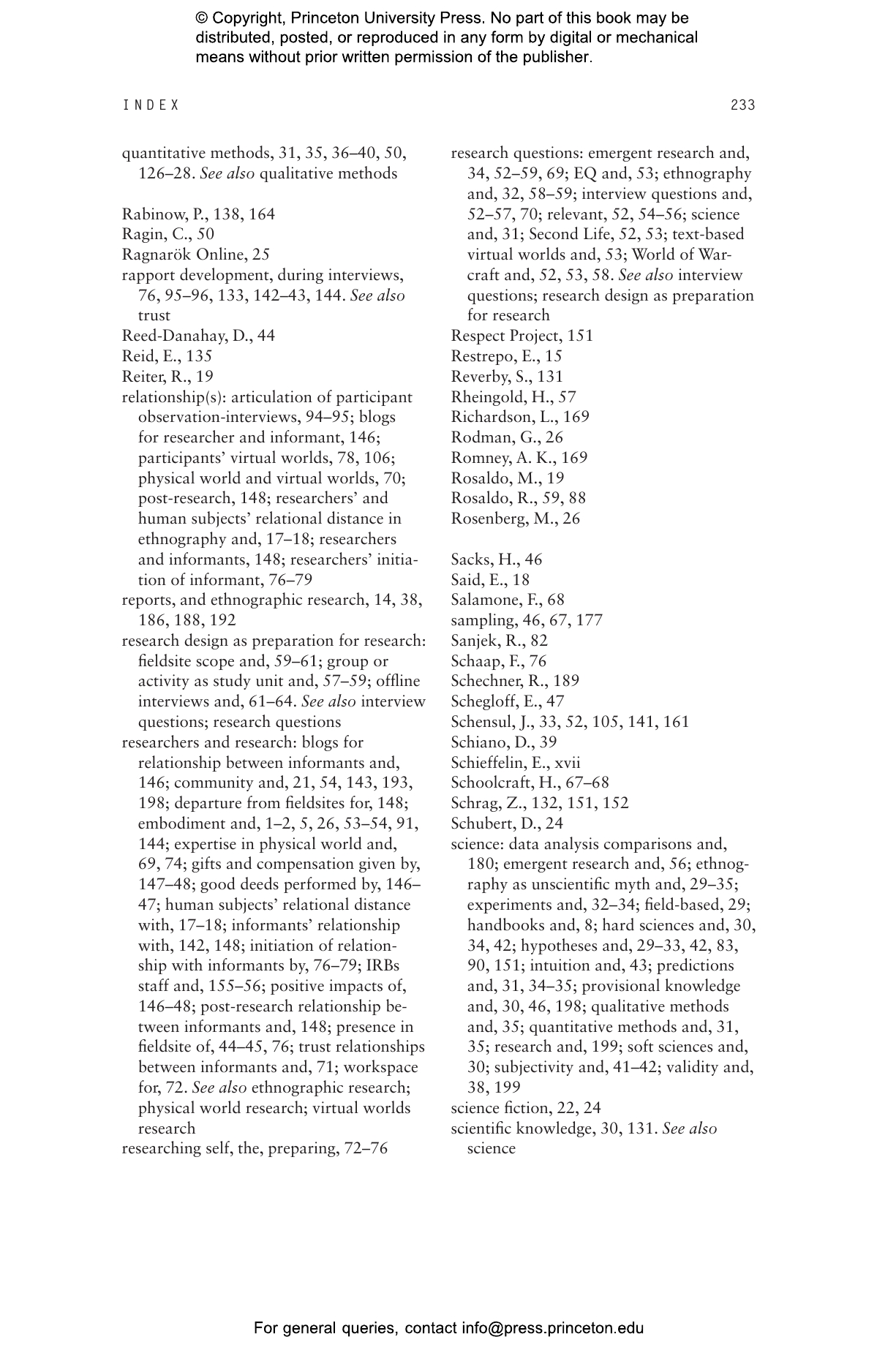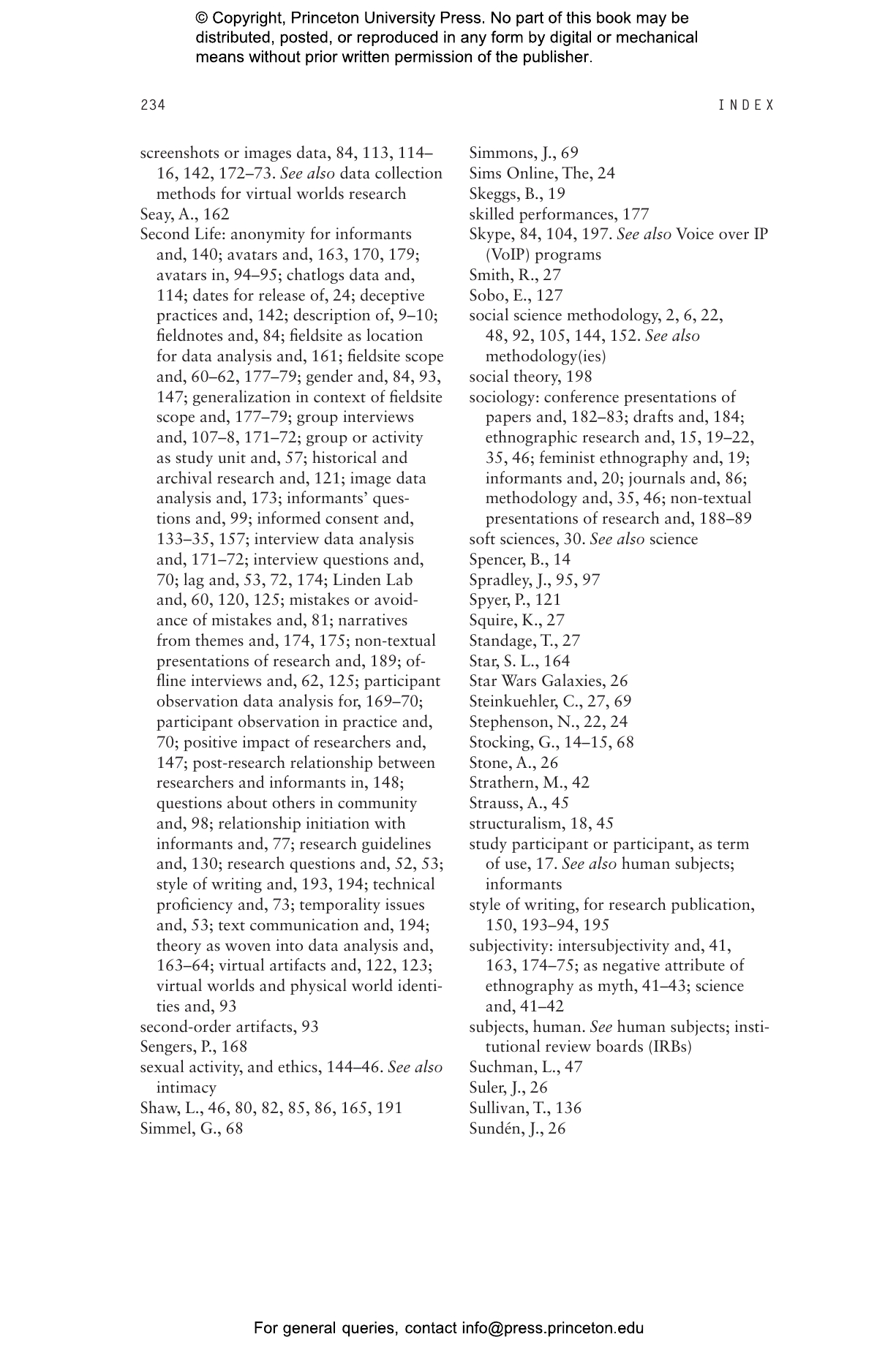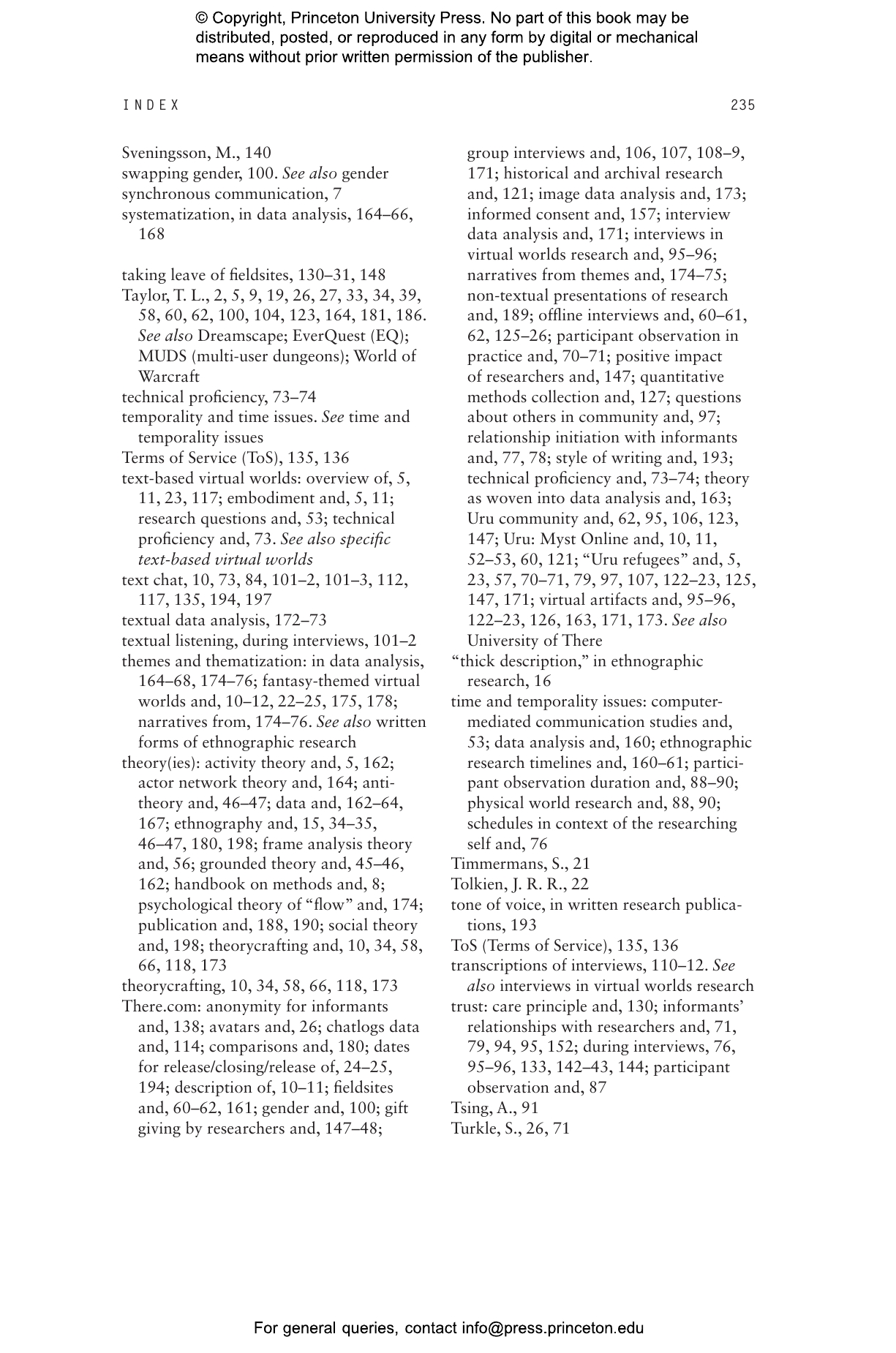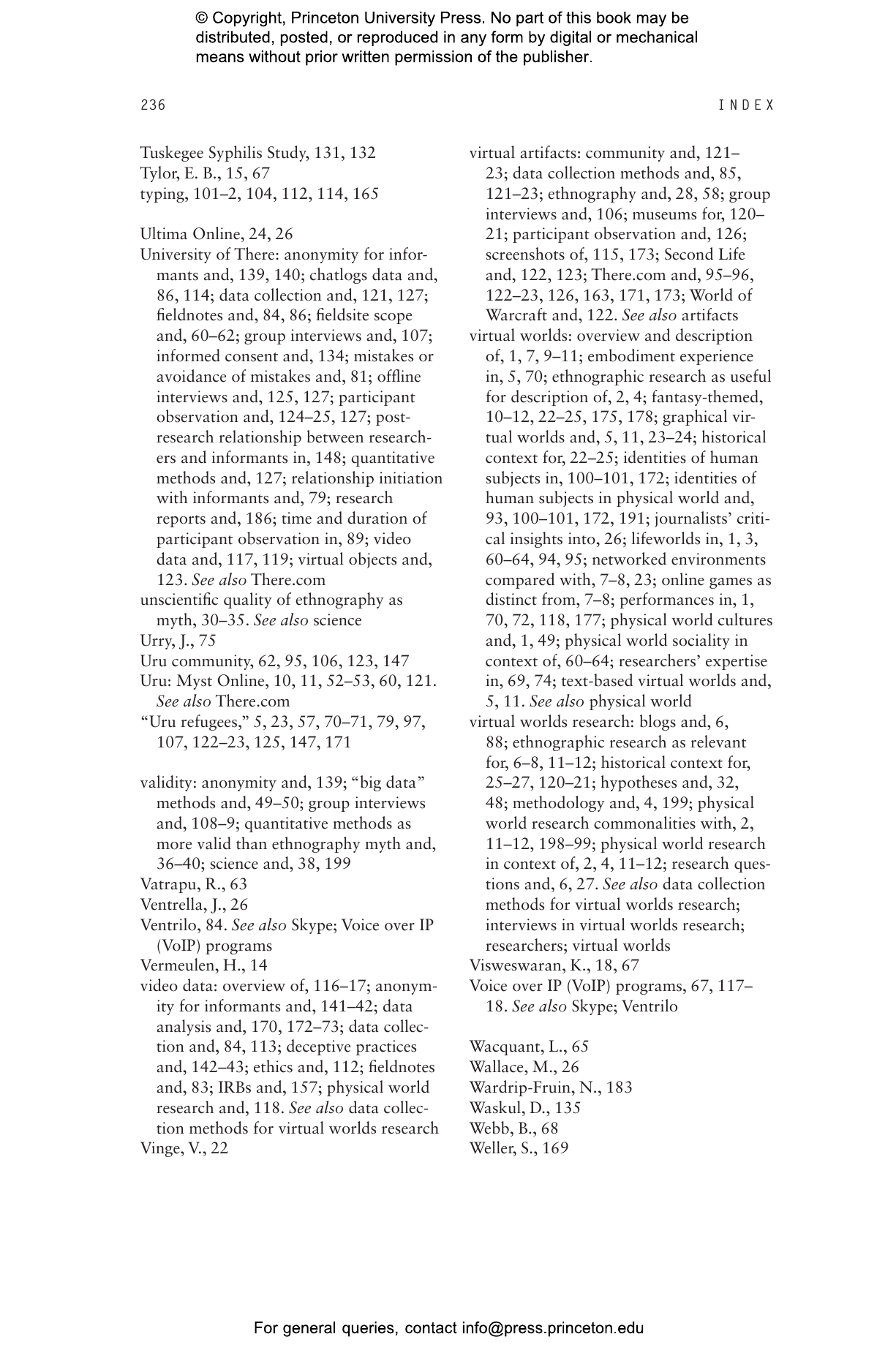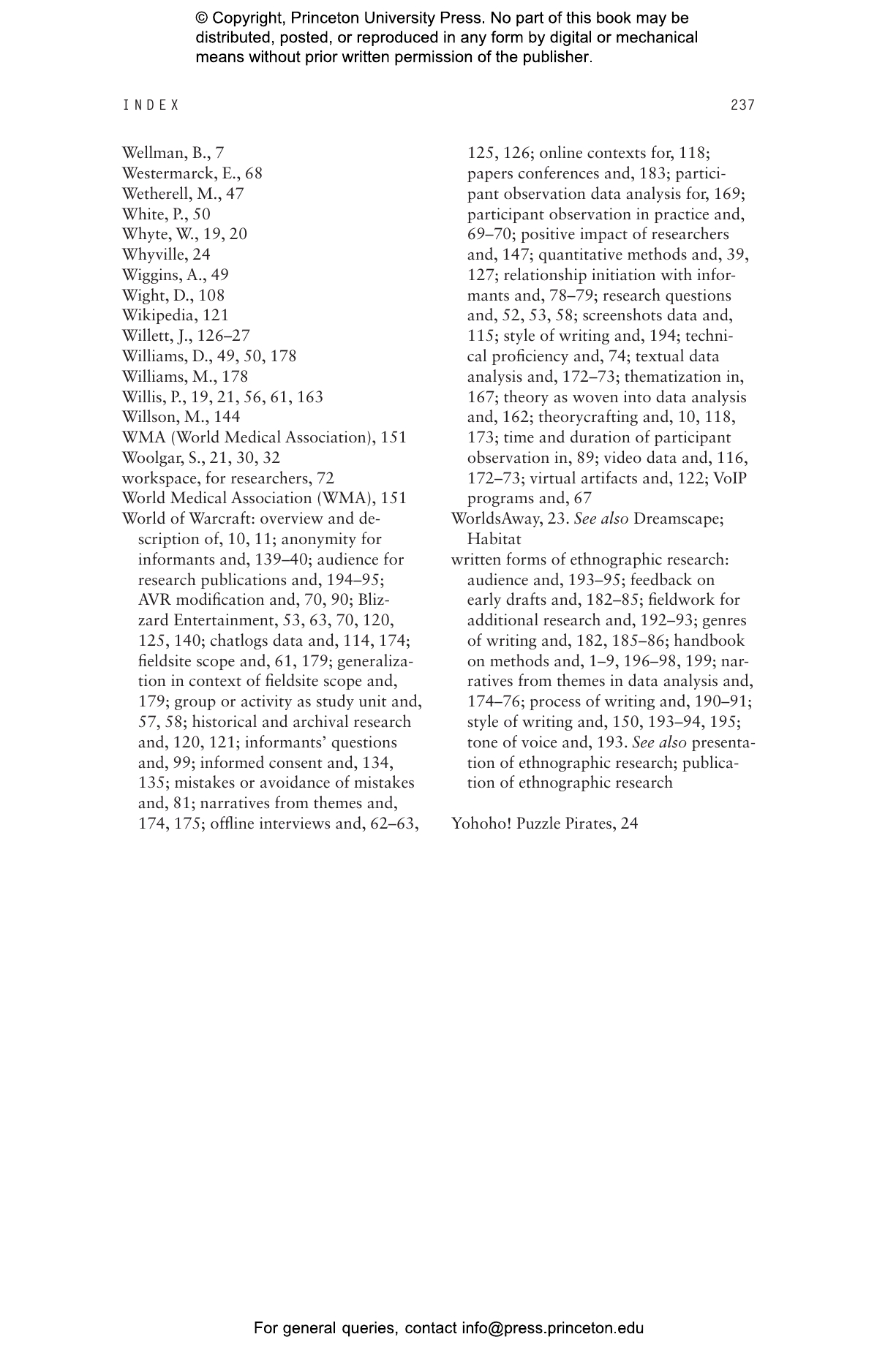Ethnography and Virtual Worlds is the only book of its kind—a concise, comprehensive, and practical guide for students, teachers, designers, and scholars interested in using ethnographic methods to study online virtual worlds, including both game and nongame environments. Written by leading ethnographers of virtual worlds, and focusing on the key method of participant observation, the book provides invaluable advice, tips, guidelines, and principles to aid researchers through every stage of a project, from choosing an online fieldsite to writing and publishing the results.
- Provides practical and detailed techniques for ethnographic research customized to reflect the specific issues of online virtual worlds, both game and nongame
- Draws on research in a range of virtual worlds, including Everquest, Second Life, There.com, and World of Warcraft
- Provides suggestions for dealing with institutional review boards, human subjects protocols, and ethical issues
- Guides the reader through the full trajectory of ethnographic research, from research design to data collection, data analysis, and writing up and publishing research results
- Addresses myths and misunderstandings about ethnographic research, and argues for the scientific value of ethnography
Tom Boellstorff is professor of anthropology at the University of California, Irvine. Their books include Coming of Age in Second Life: An Anthropologist Explores the Virtually Human. Bonnie Nardi is professor (emer.) of informatics at the University of California, Irvine. Her books include My Life as a Night Elf Priest: An Anthropological Account of World of Warcraft. Celia Pearce is professor of game design at Northeastern University. Her books include Communities of Play: Emergent Cultures in Multiplayer Games and Virtual Worlds. T. L. Taylor is professor of comparative media studies at the Massachusetts Institute of Technology. Her books include Play Between Worlds: Exploring Online Game Culture.
"We can hope that young scholars and established ones, friends and critics of ethnography alike, will read this book, take it seriously, and carry it with them in whatever world they study and inhabit."—Jack David Eller, Anthropology Review
"In this useful volume, the coauthors, each of whom is an accomplished virtual world ethnographer, pretty much put to rest threshold questions that might be raised about whether virtual worlds and online cultures can be proper objects of anthropological research. . . . The authors provide as much insight and instructive commentary about traditional ethnography as they do about the ethnography of virtual worlds."—Choice
"Ethnography and Virtual Worlds provides invaluable advice, tips, guidelines, principles, and further resources to aid researchers through every stage of a participant observation virtual worlds research project, from choosing the online field site to writing and publishing the results."—John F. Barber, Leonardo Reviews
"[The authors] have produced a very interesting and timely contribution; clearly written, with easy-to-follow case studies. . . . Ethnography and Virtual Worlds will be useful to any graduate student in social sciences, but as well in humanities, media and Cultural Studies or in any interdisciplinary approach focused on virtual worlds. It is not an introduction to ethnography as such, rather a helpful guide to help scholars already familiar with ethnography and related methodologies to adapt their approaches to cases using the Internet and interactive virtual worlds."—Yves Laberge, LSE Review of Books
"I would . . . enthusiastically recommend this book to people interested in virtual world and other digital media ethnography—not just as a handbook of method—but as a compilation of the collective wisdom of these four very experienced and highly respected ethnographers—and as a thoroughly good read."—Jeni Paay, Computer Supported Cooperative Work
"What does 'being there to know there' mean in the virtual world? 'Not much,' I used to think! Maybe 'virtual ethnography' was an oxymoron? This book changed my mind. Most surprising is how the authors' distillation of ethnography for virtual worlds reveals its essential and classical features. This book renews the craft of ethnography for all of the social sciences in virtual and physical worlds alike, making us think differently about both."—Paul Willis, author of Learning to Labor: How Working Class Kids Get Working Class Jobs
"This might be the best thing I have ever read about ethnography. I love this book."—Lori Kendall, author of Hanging Out in the Virtual Pub
"Written by a very authoritative team, this is a distinctive guide, rich in practical advice grounded in the authors' experiences."—Christine Hine, author of Virtual Ethnography


